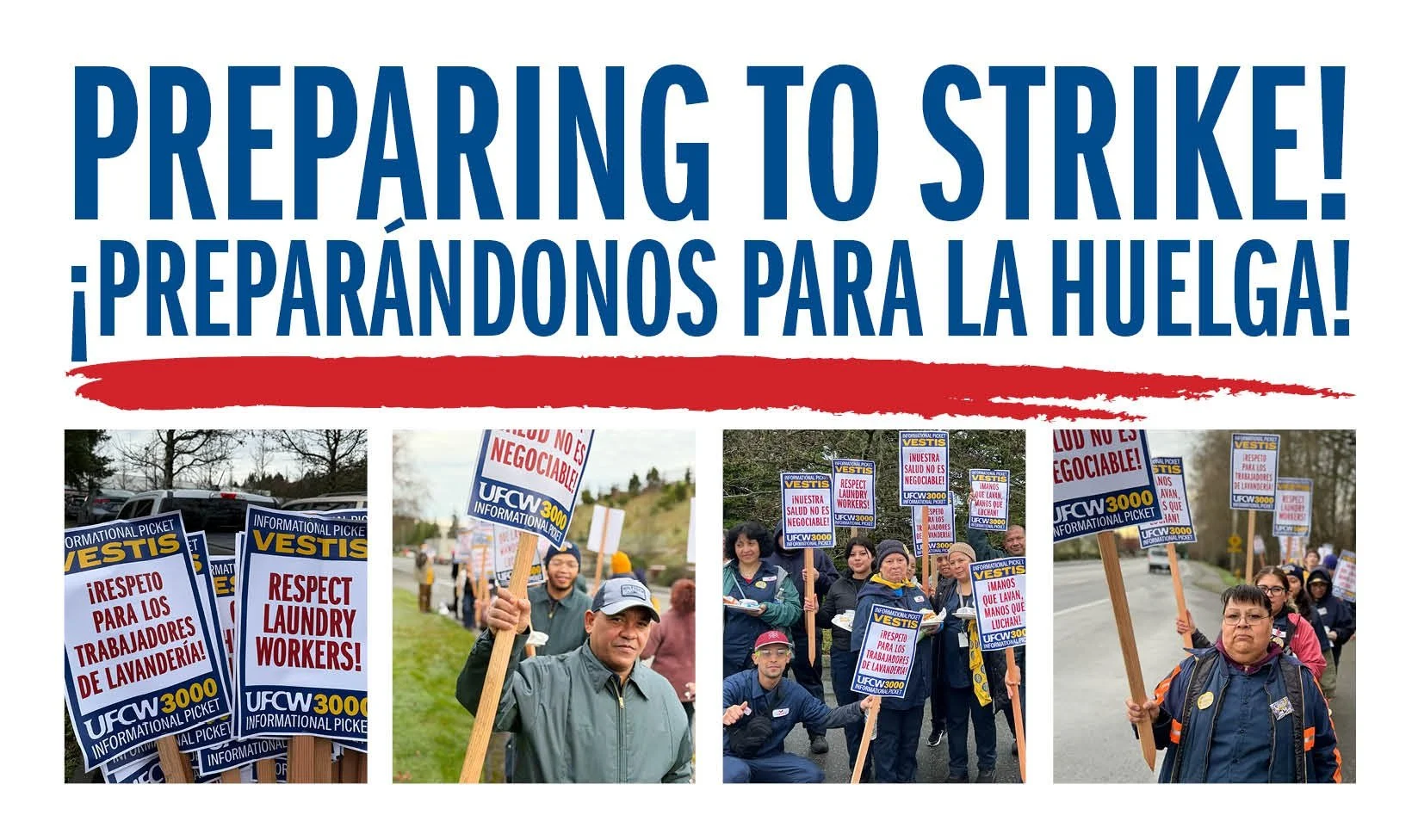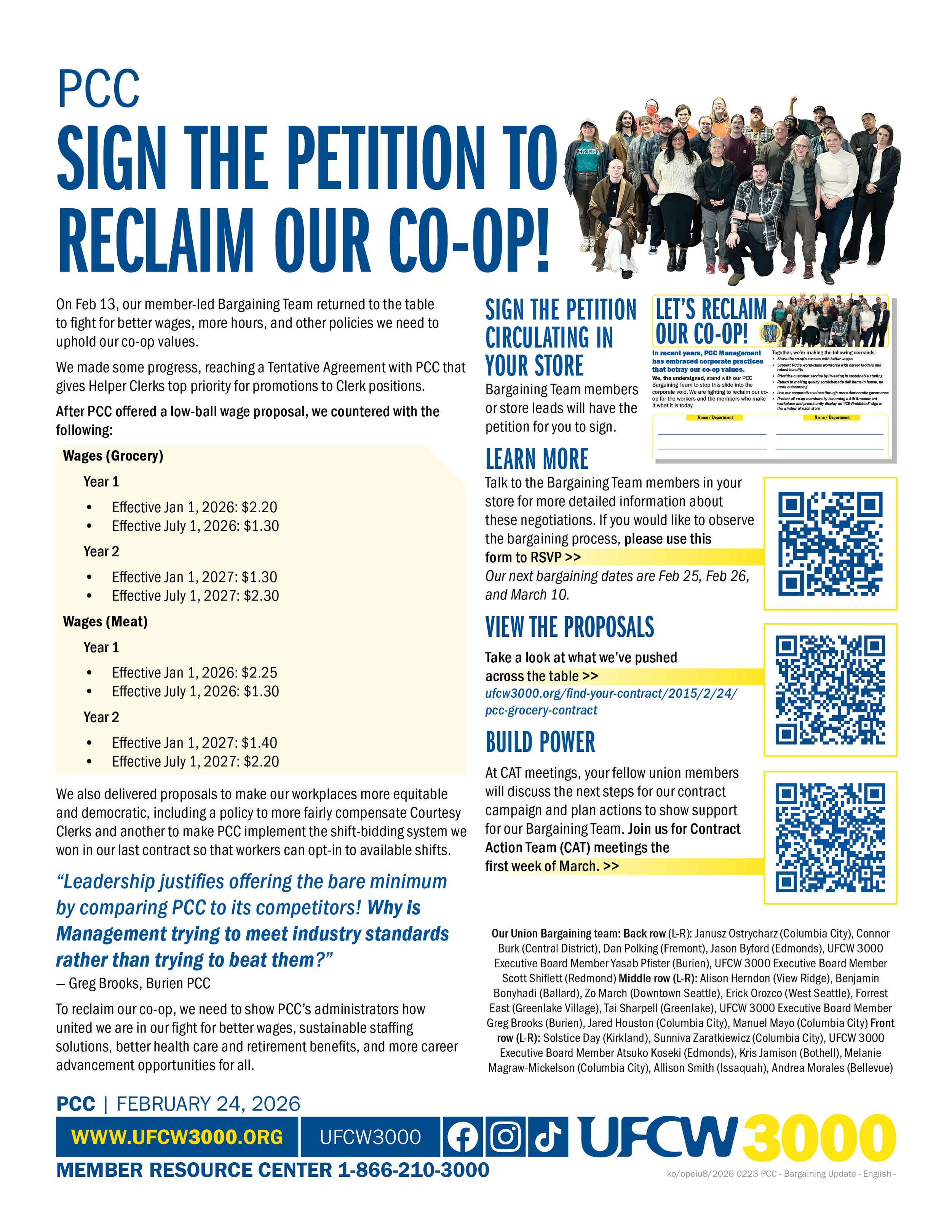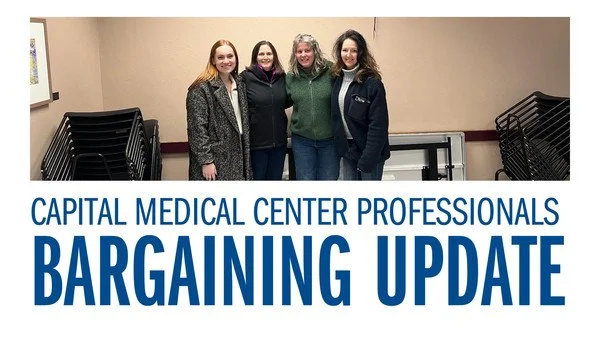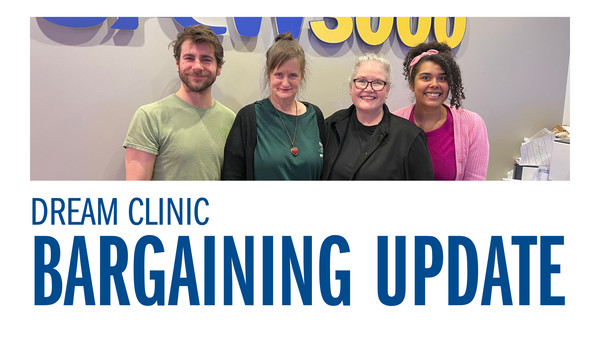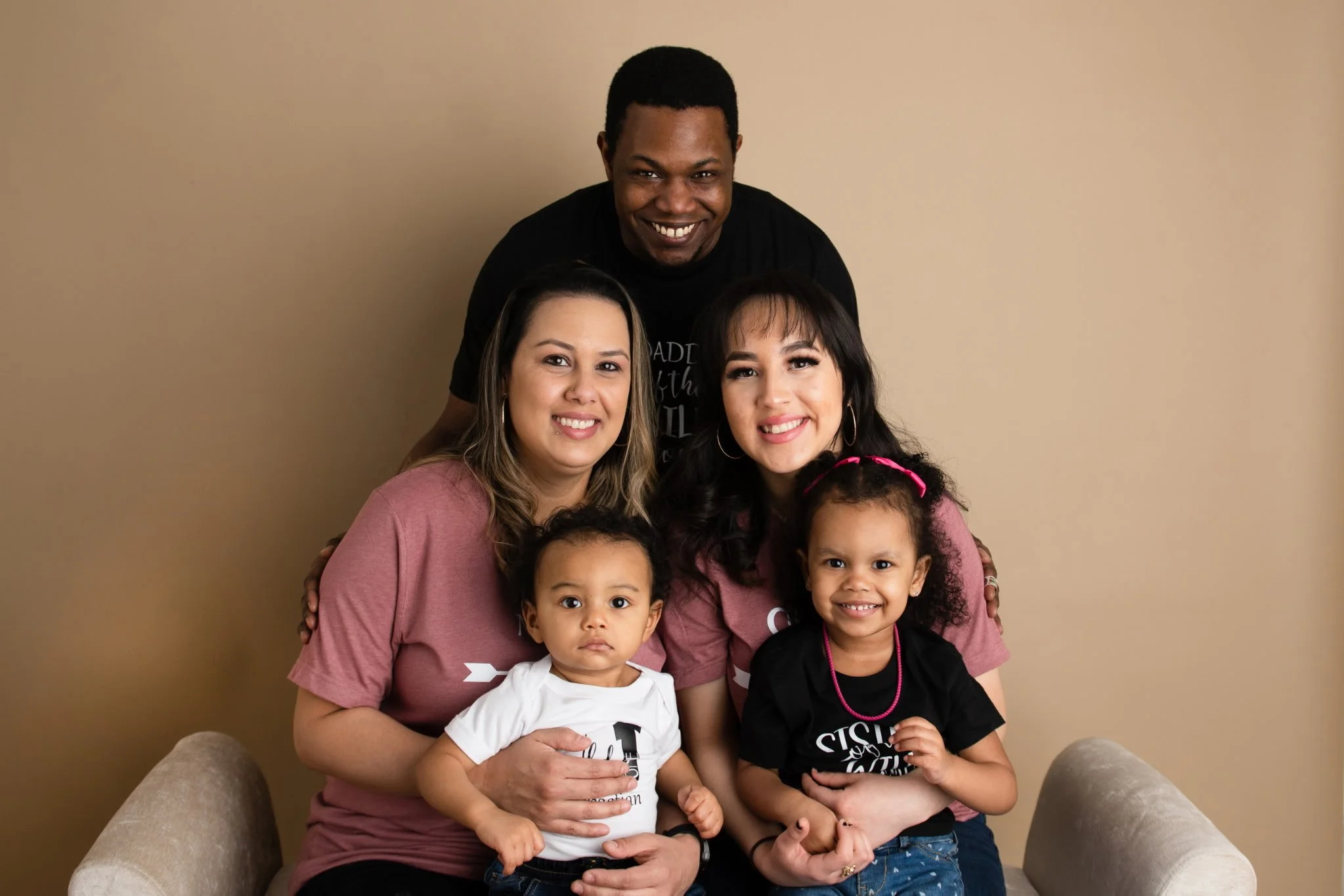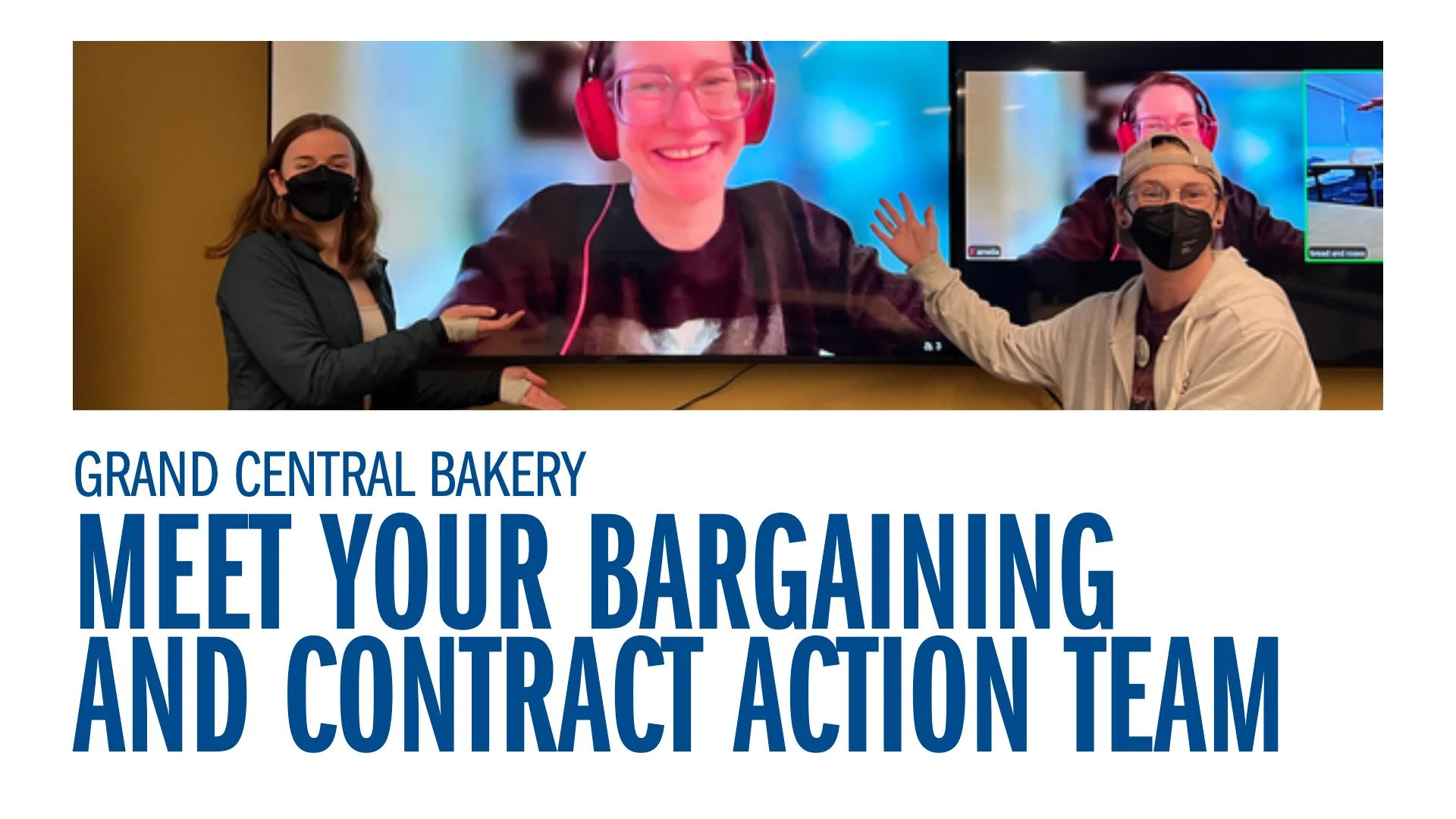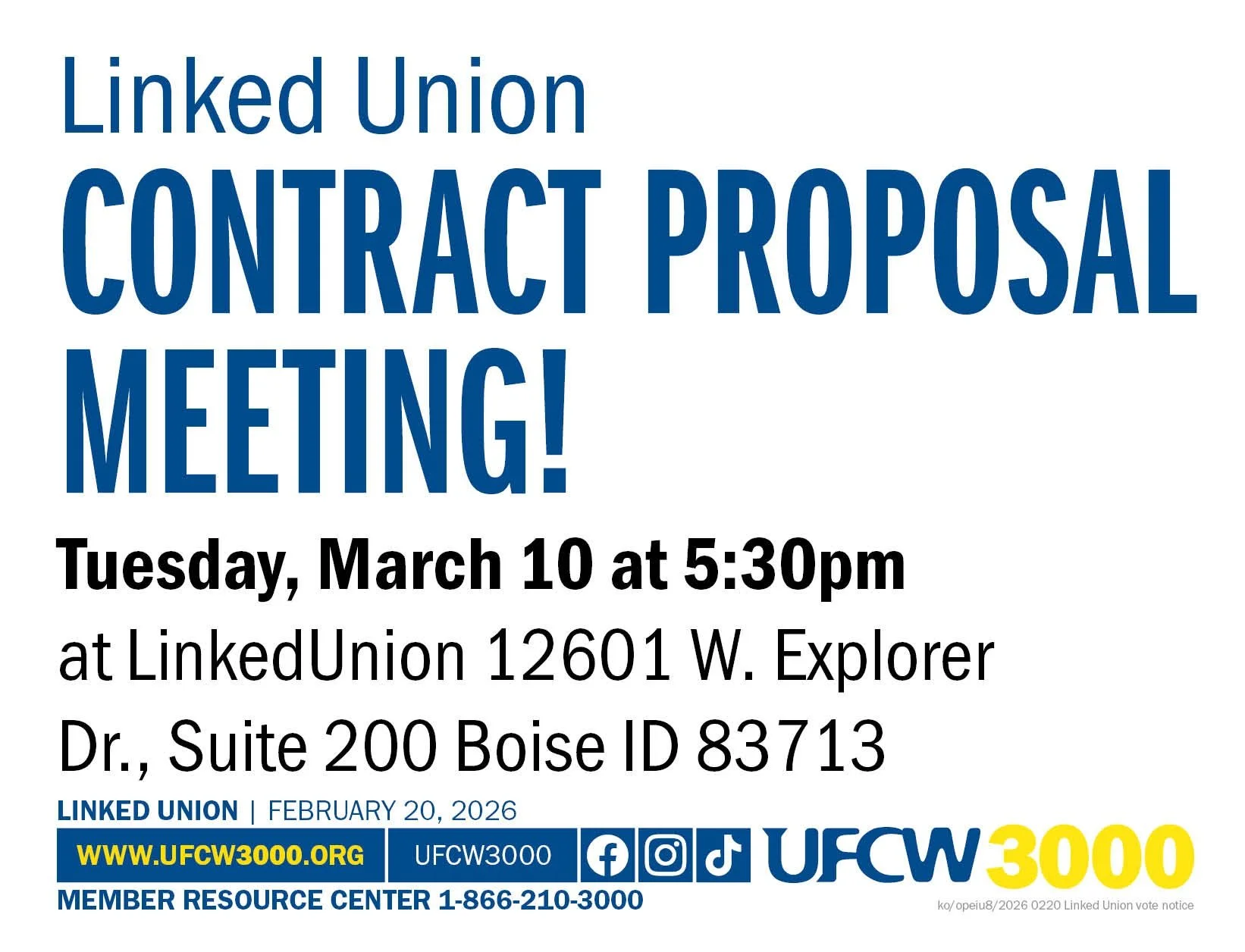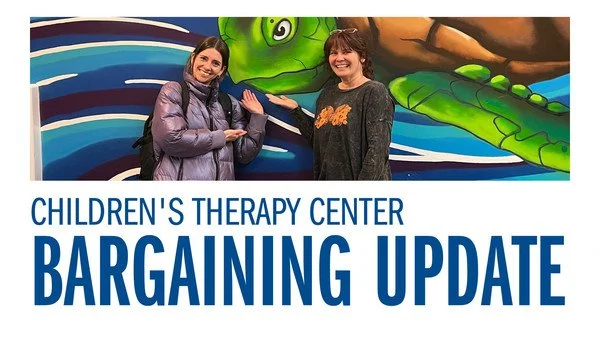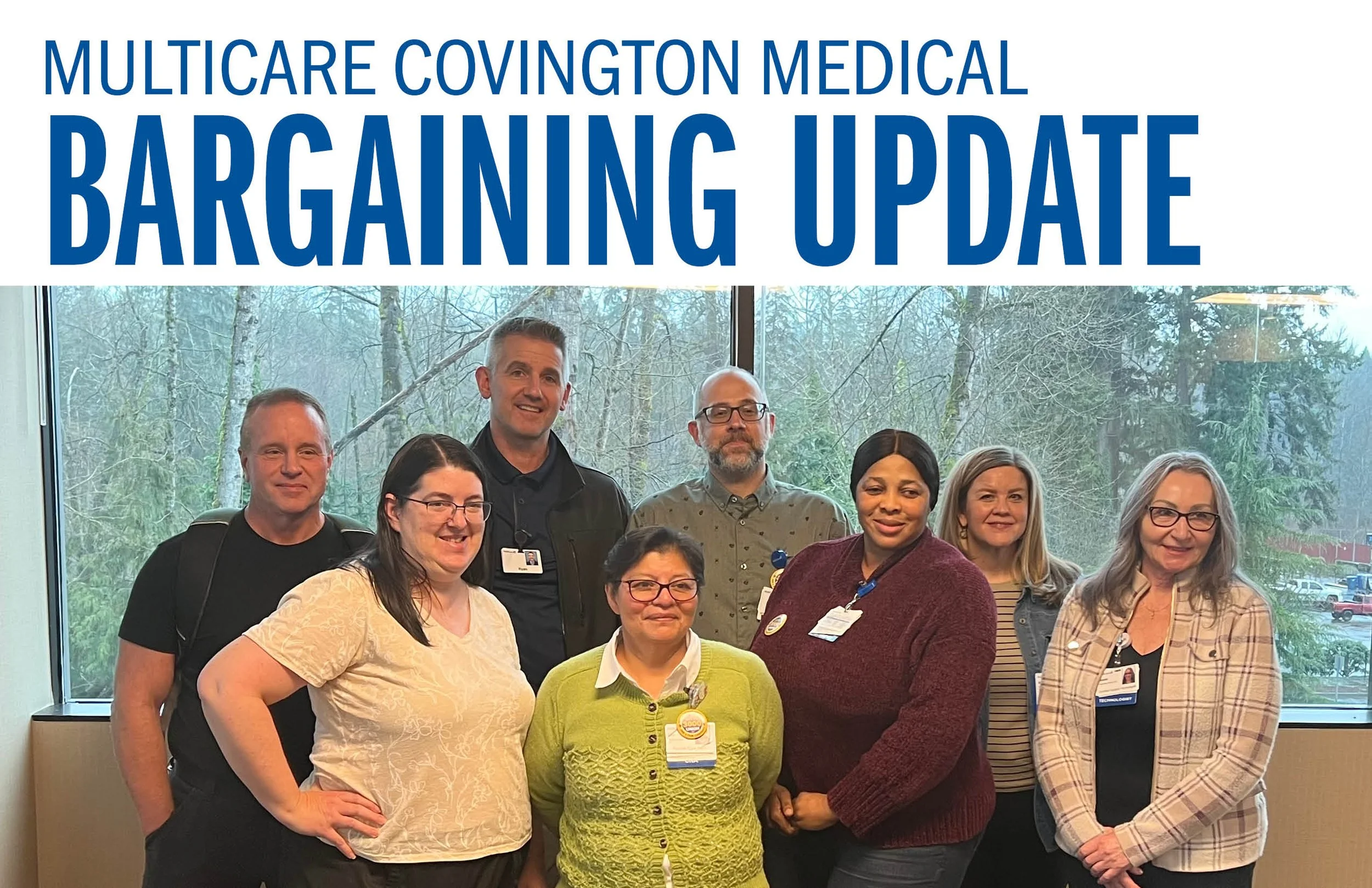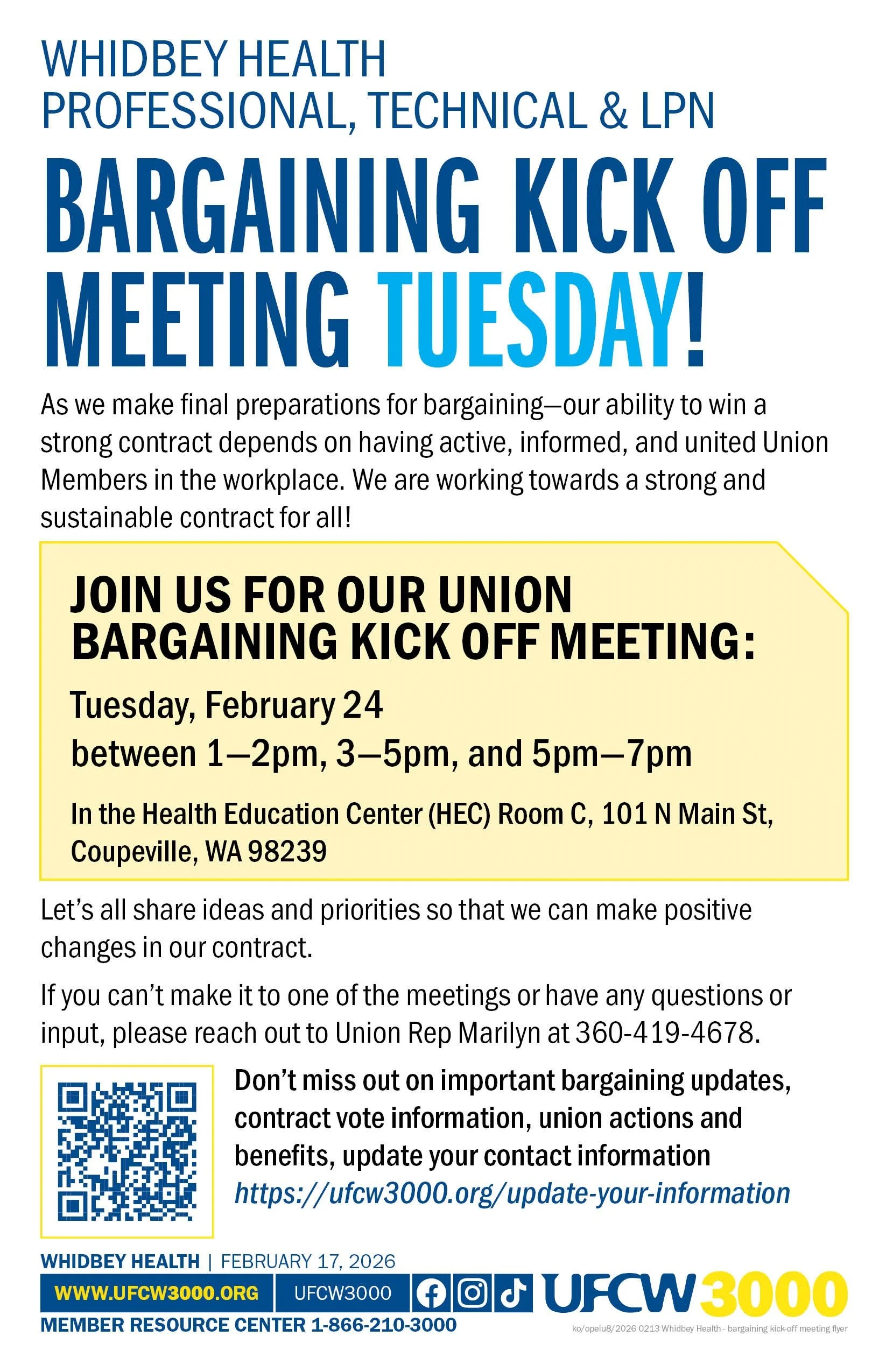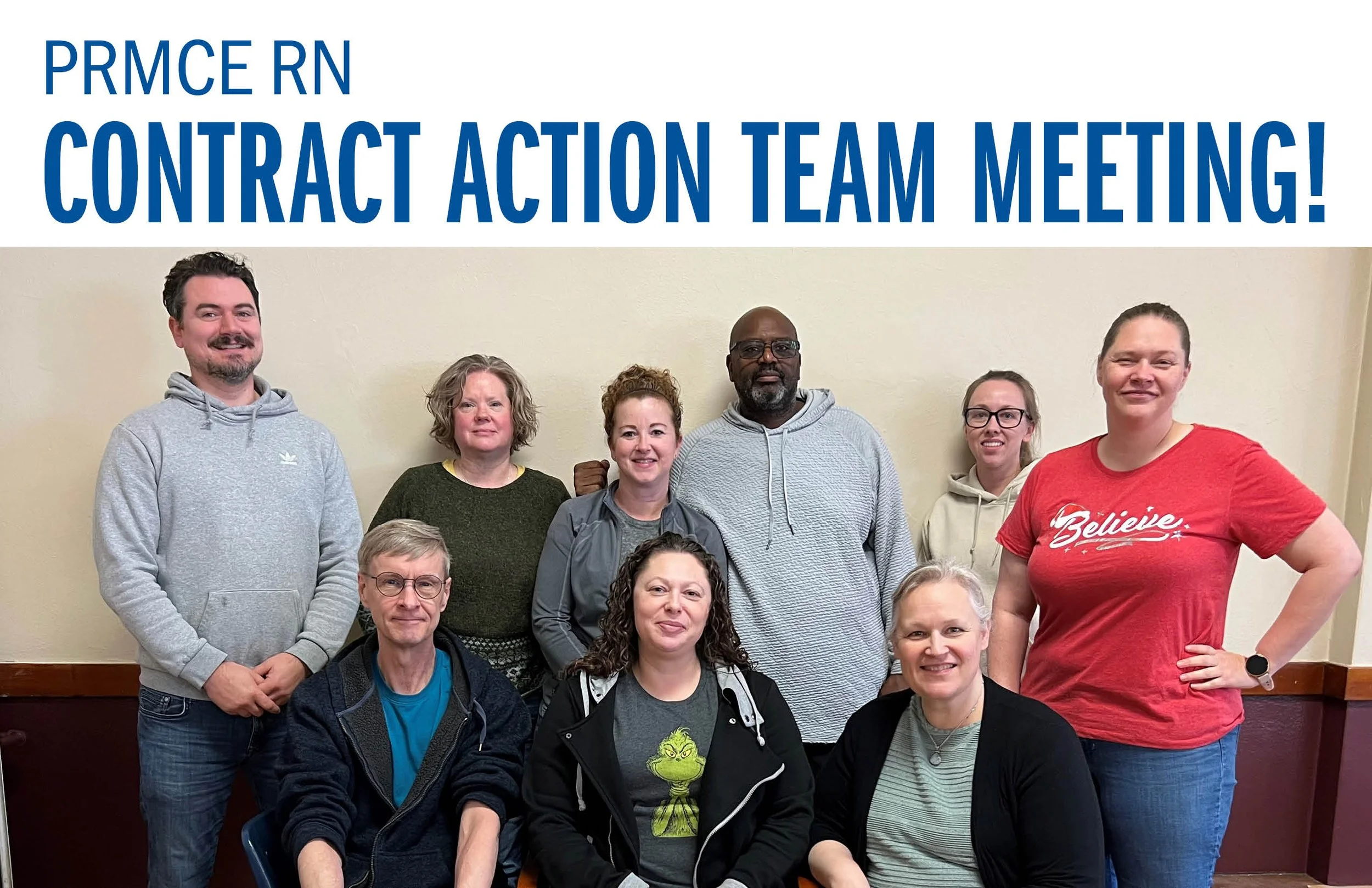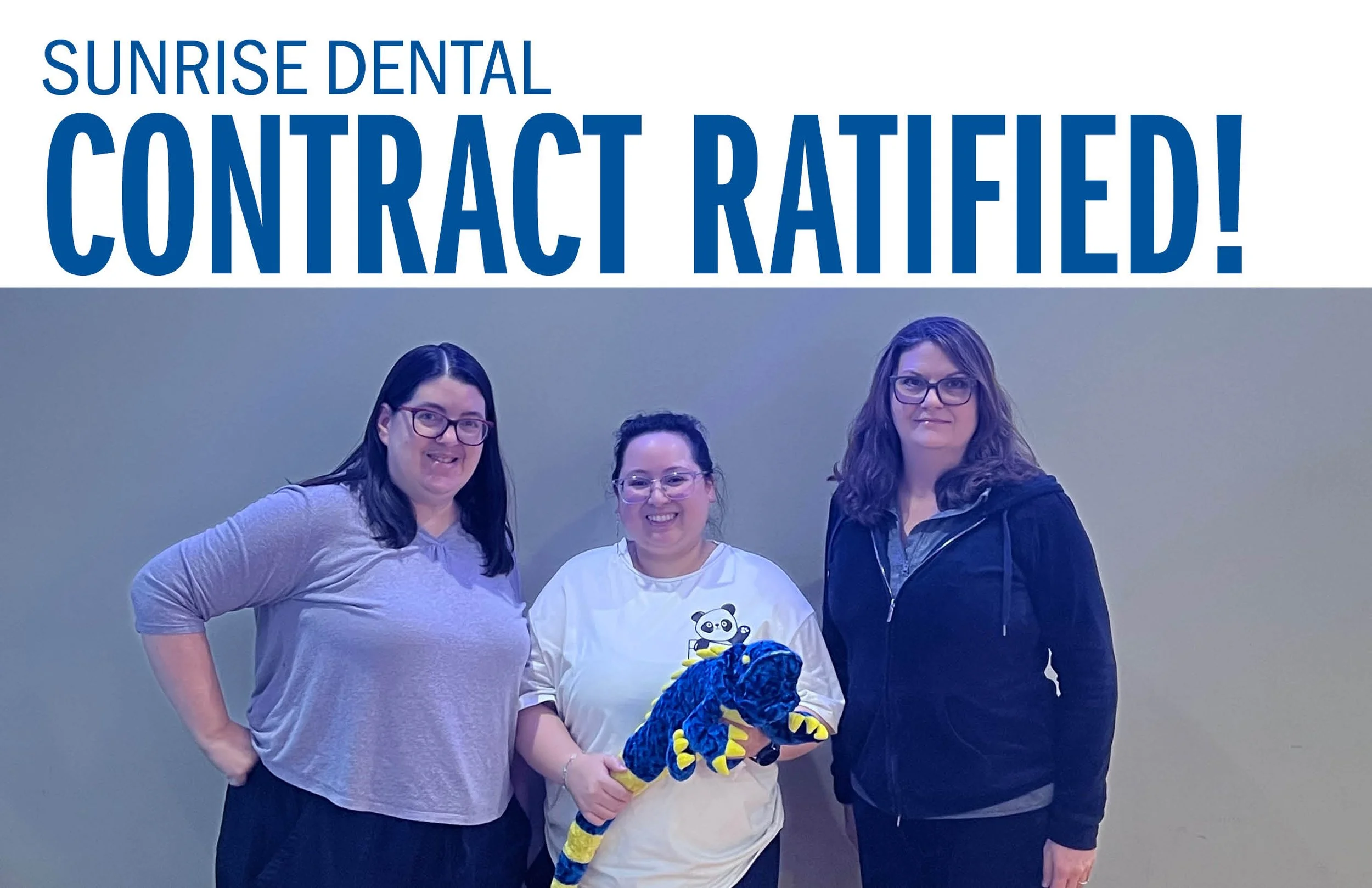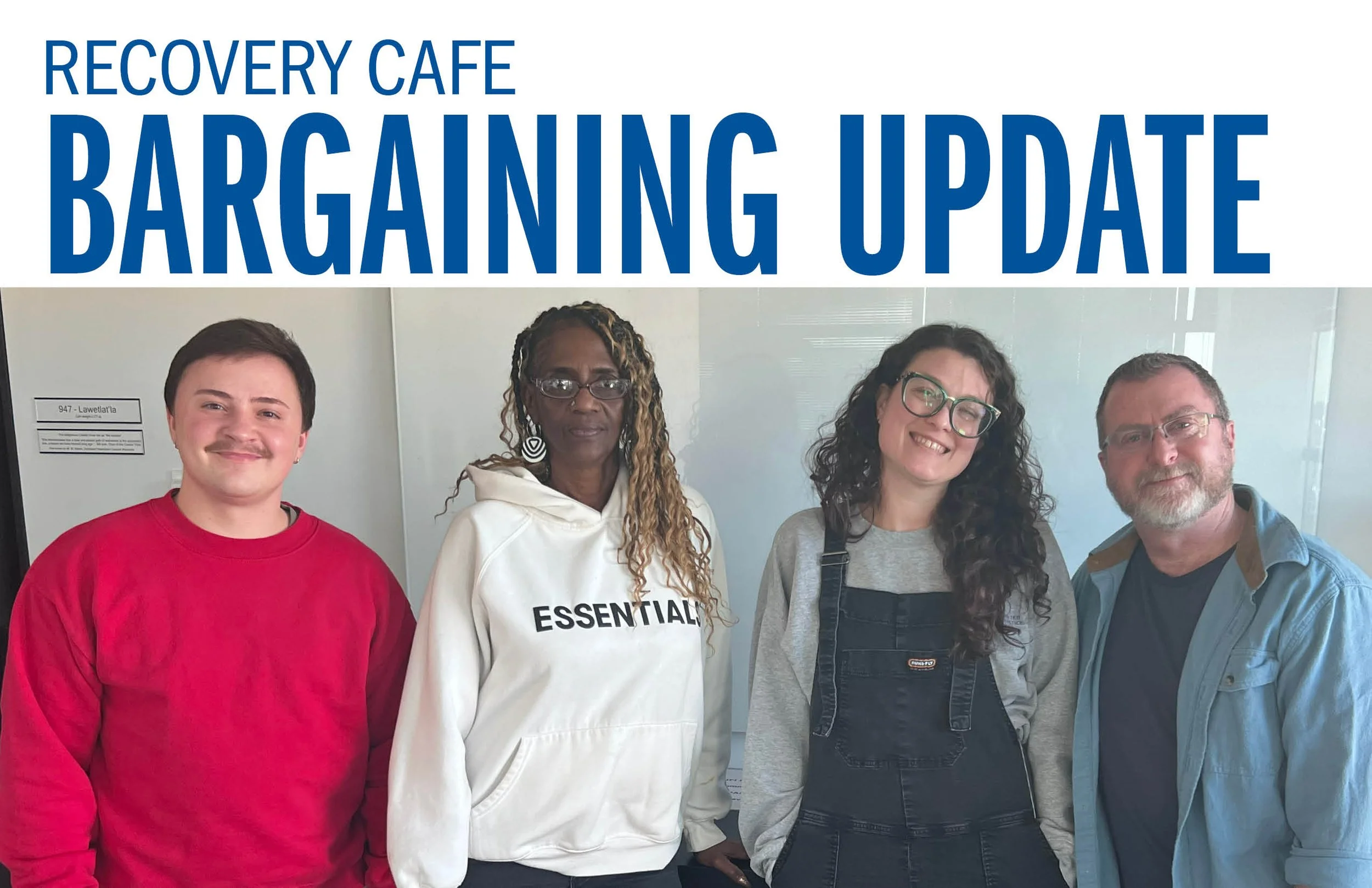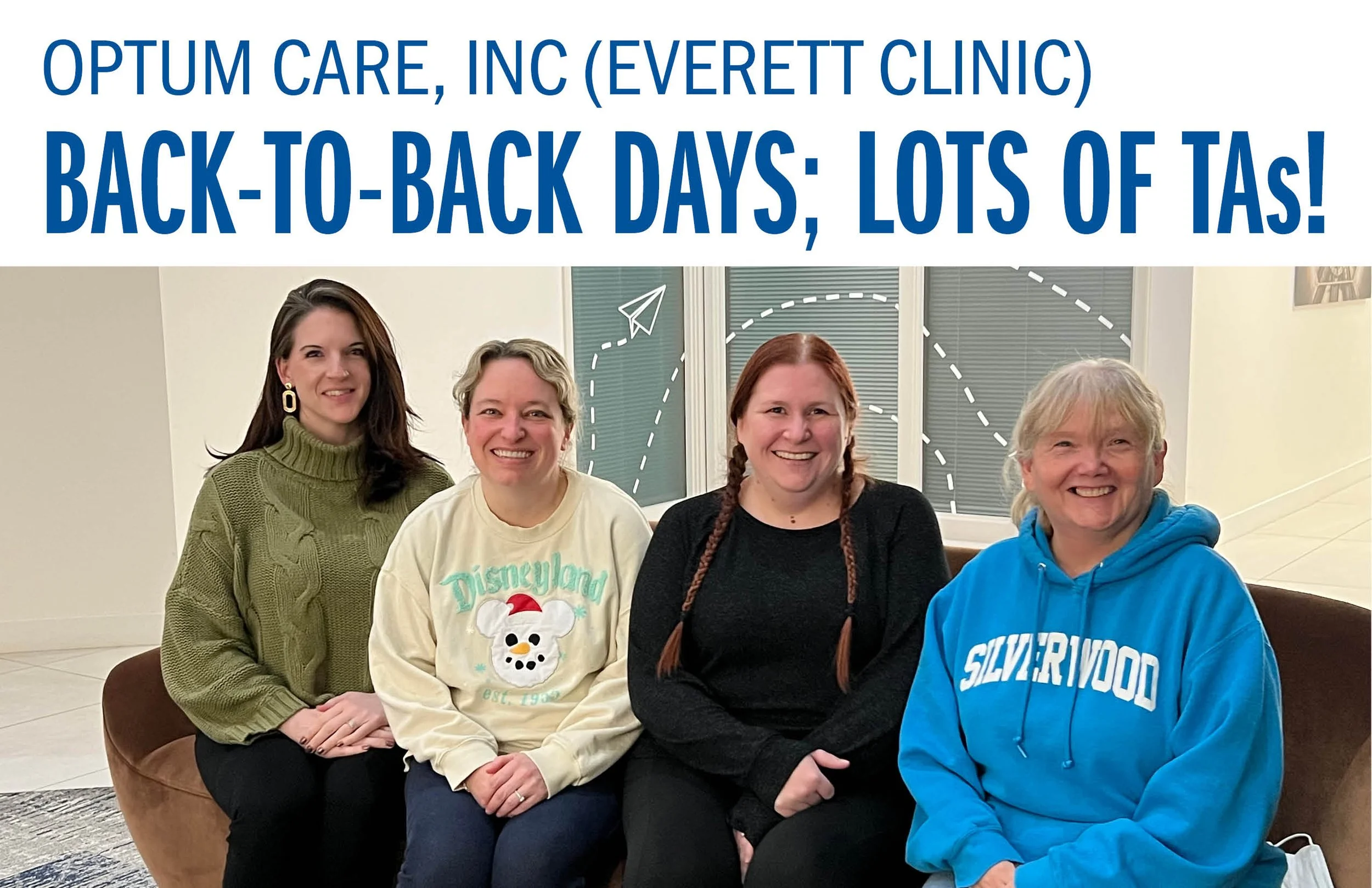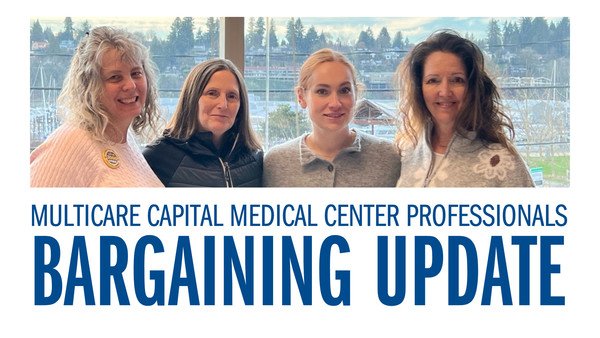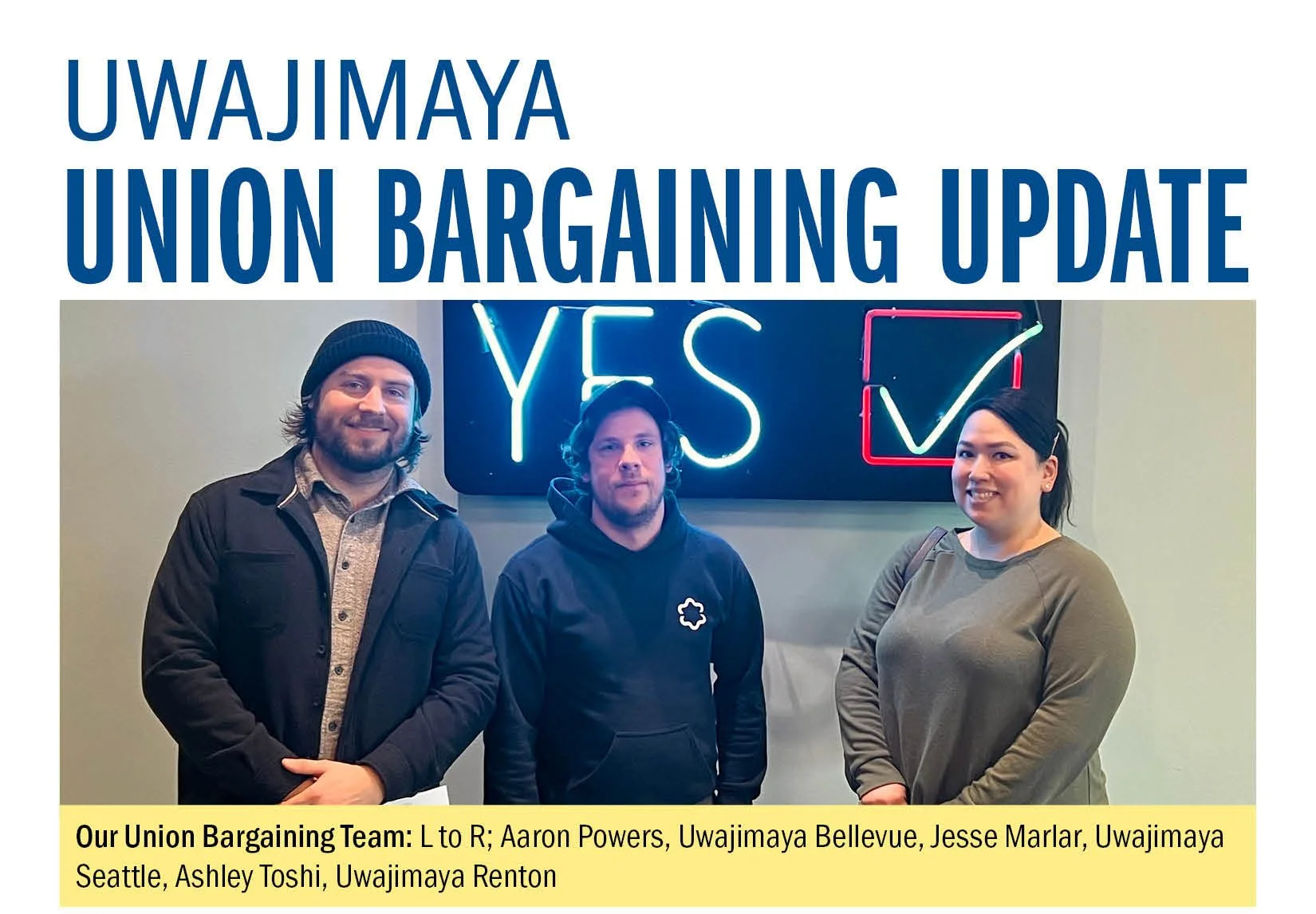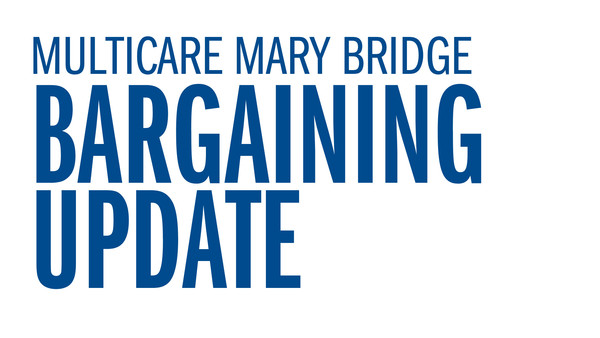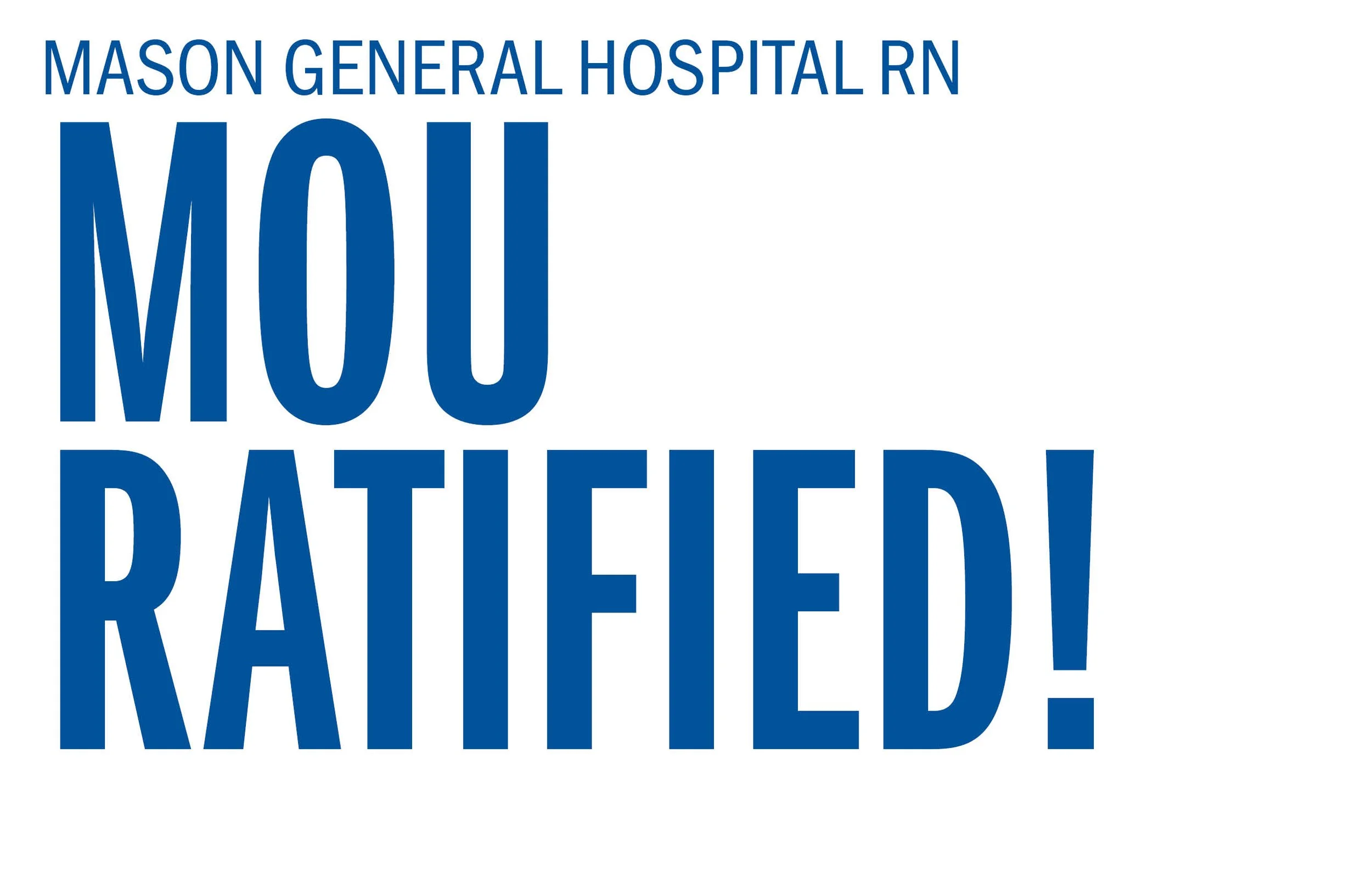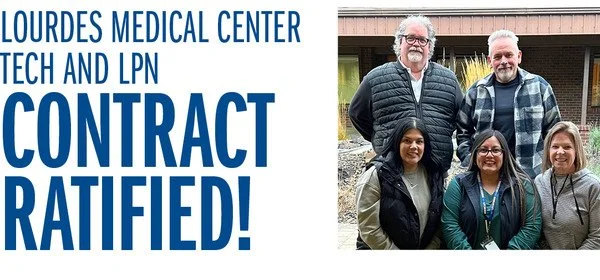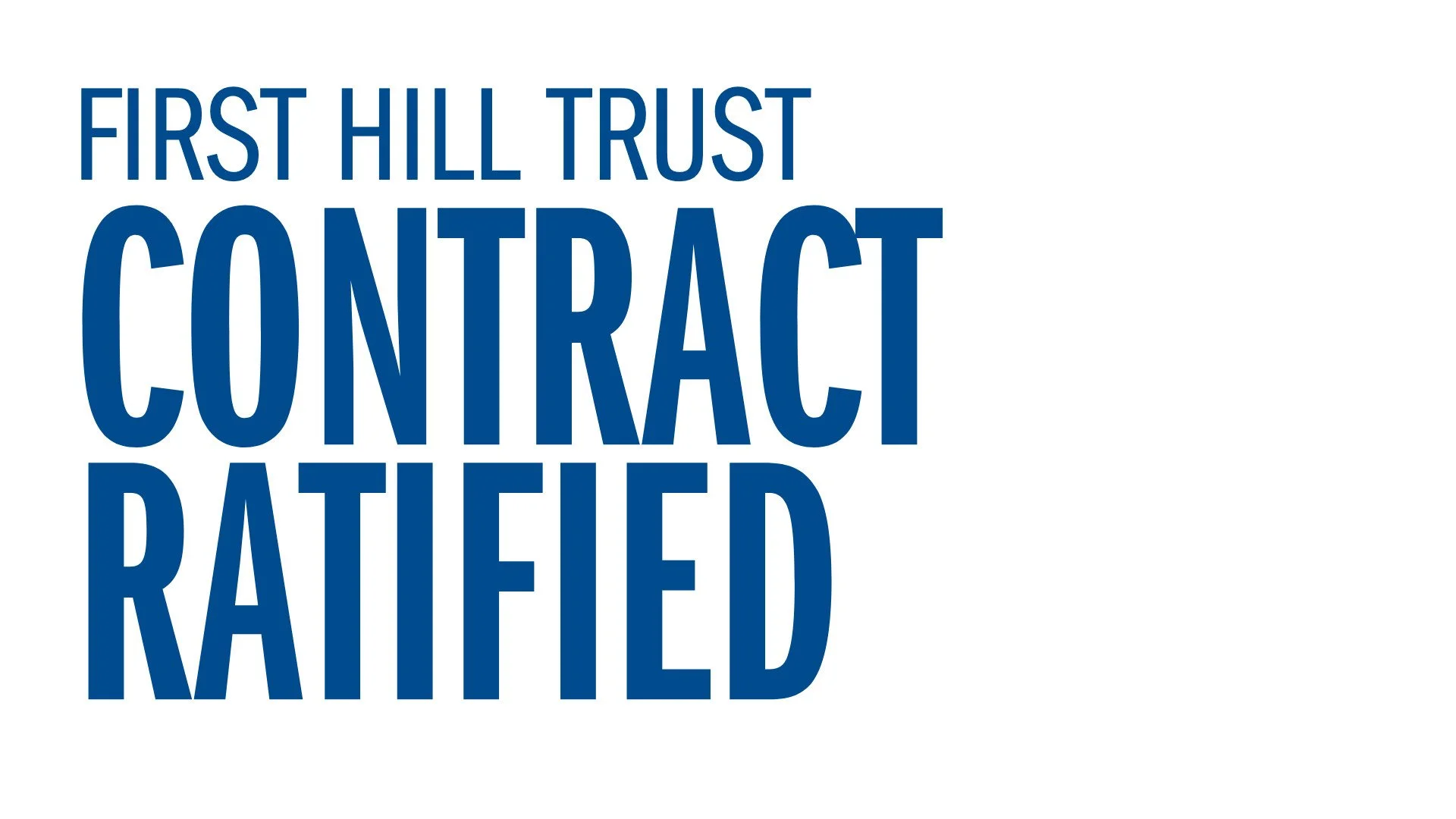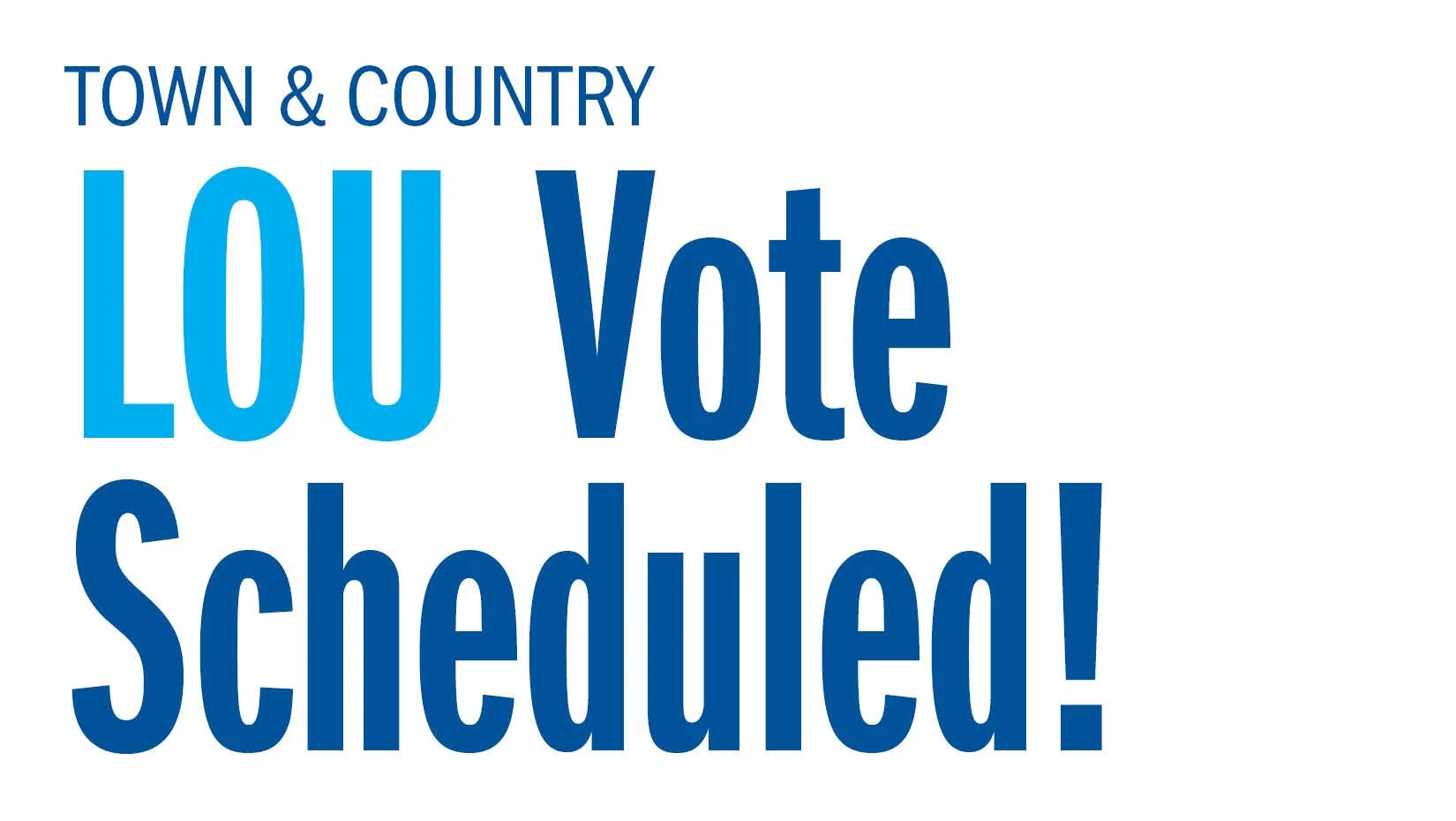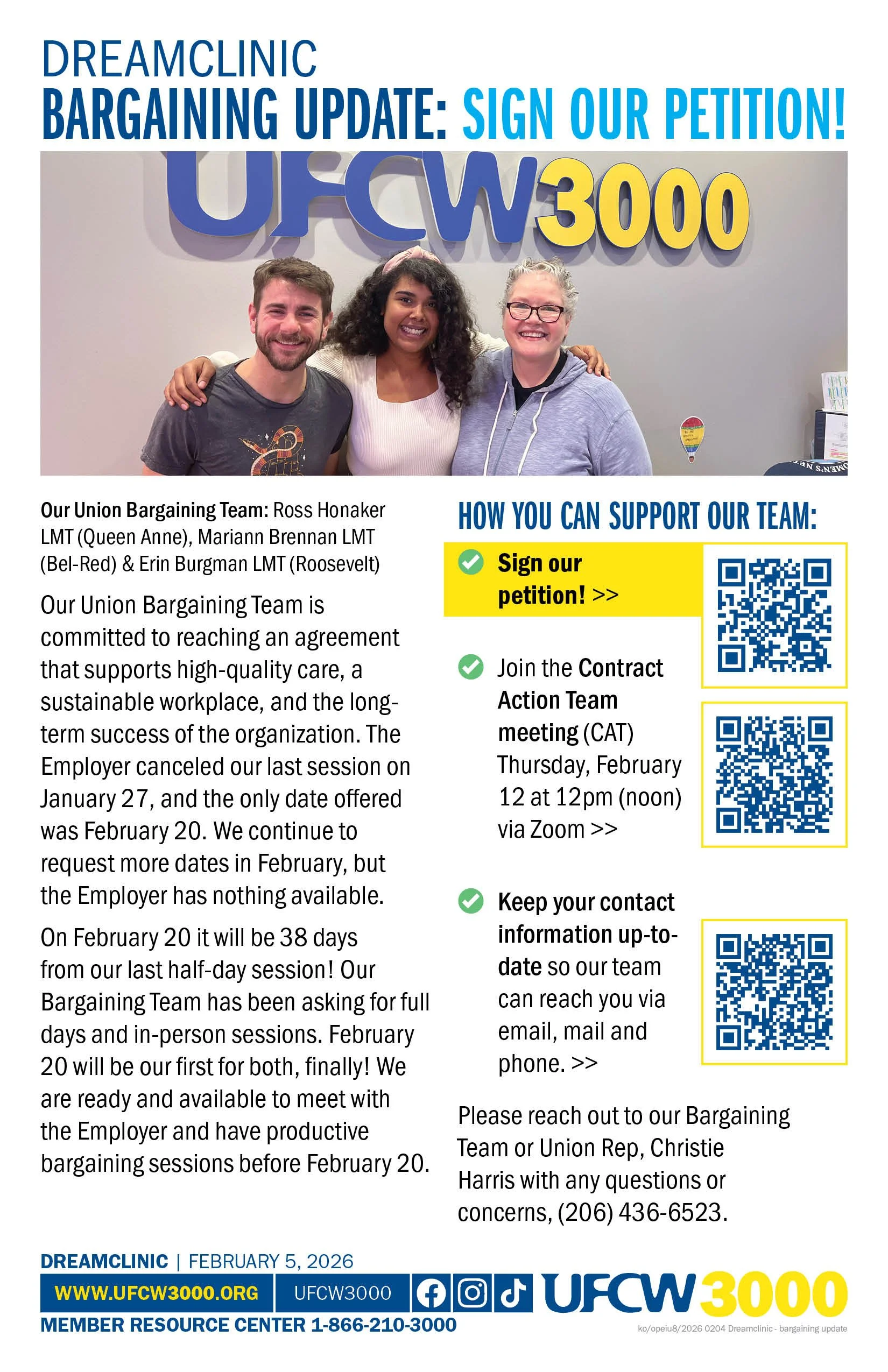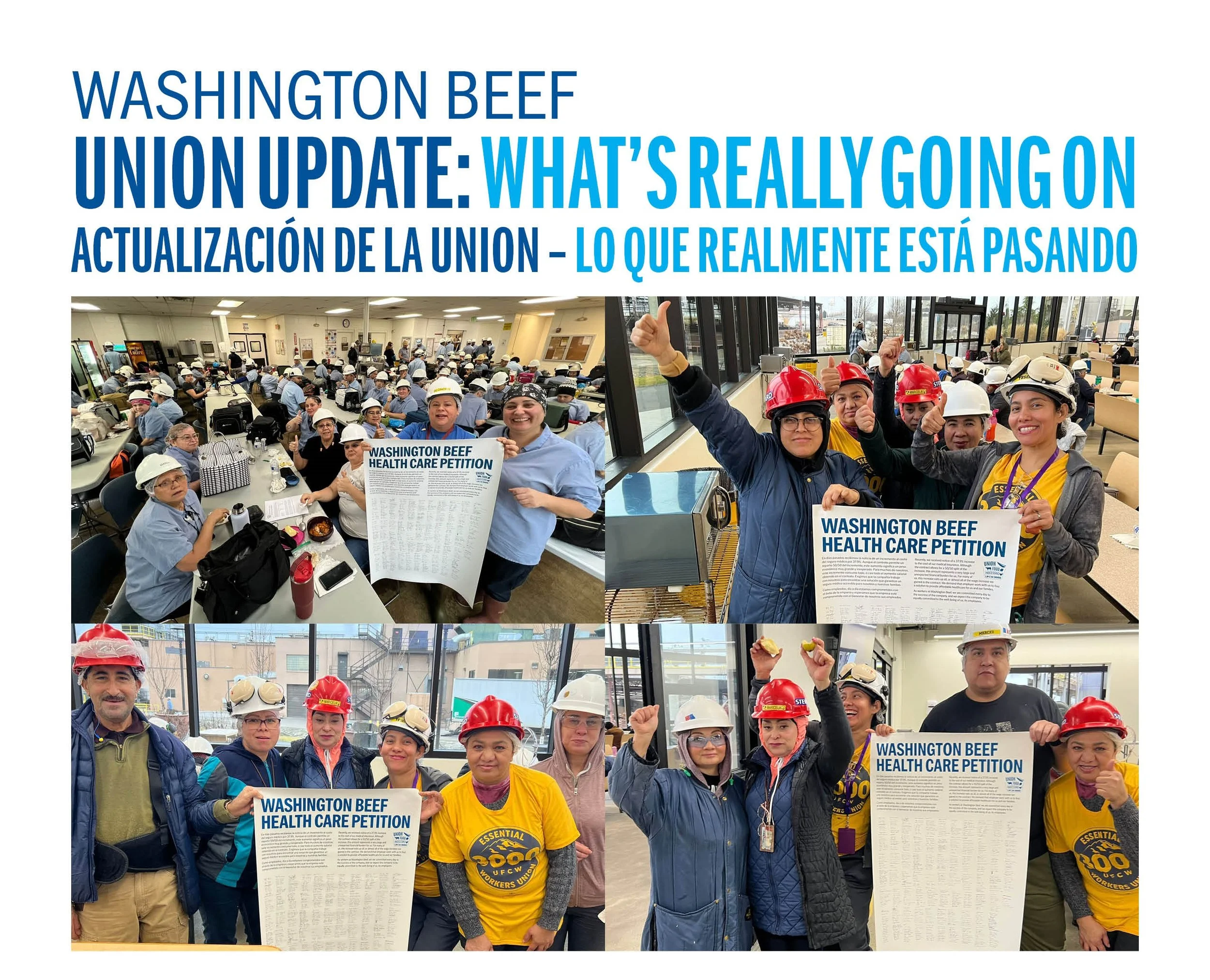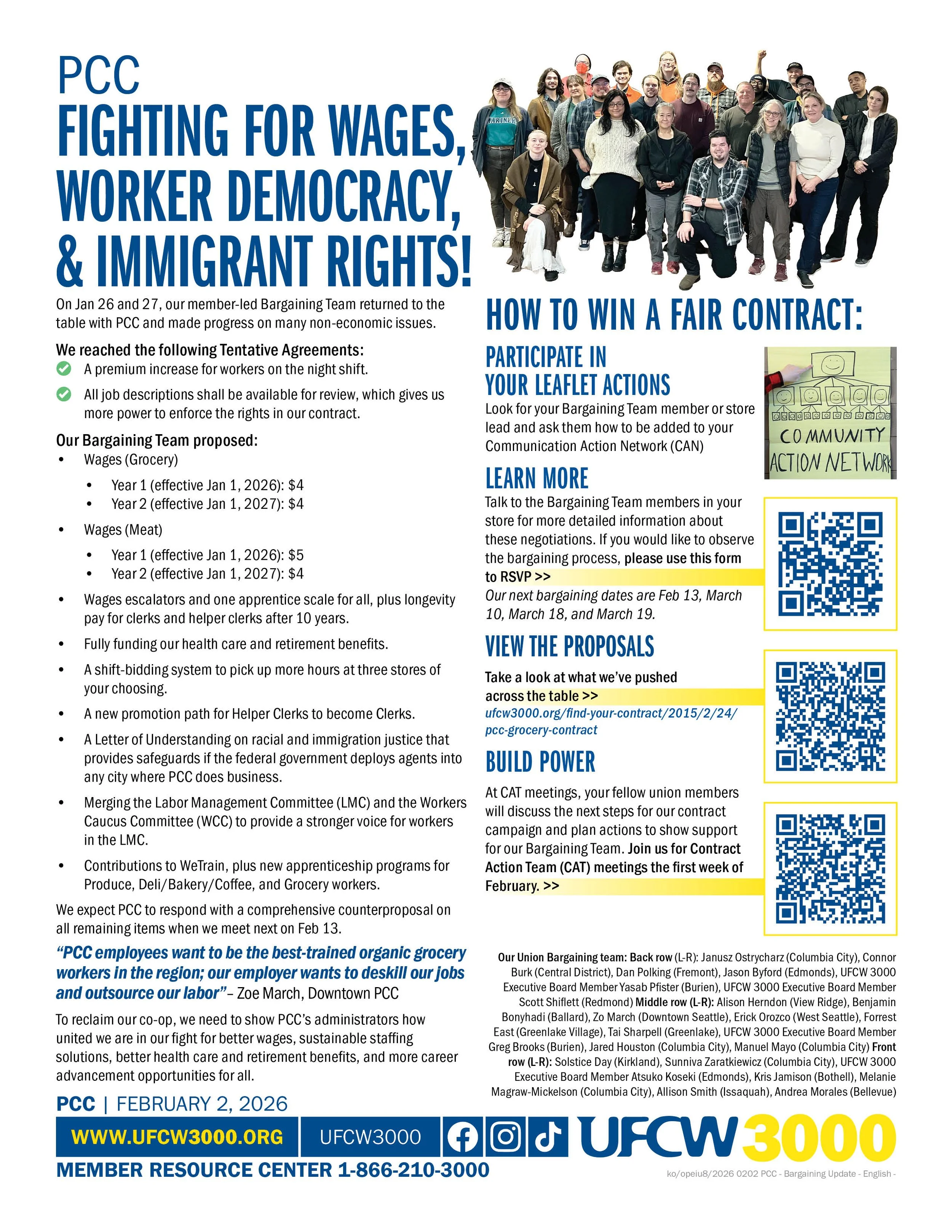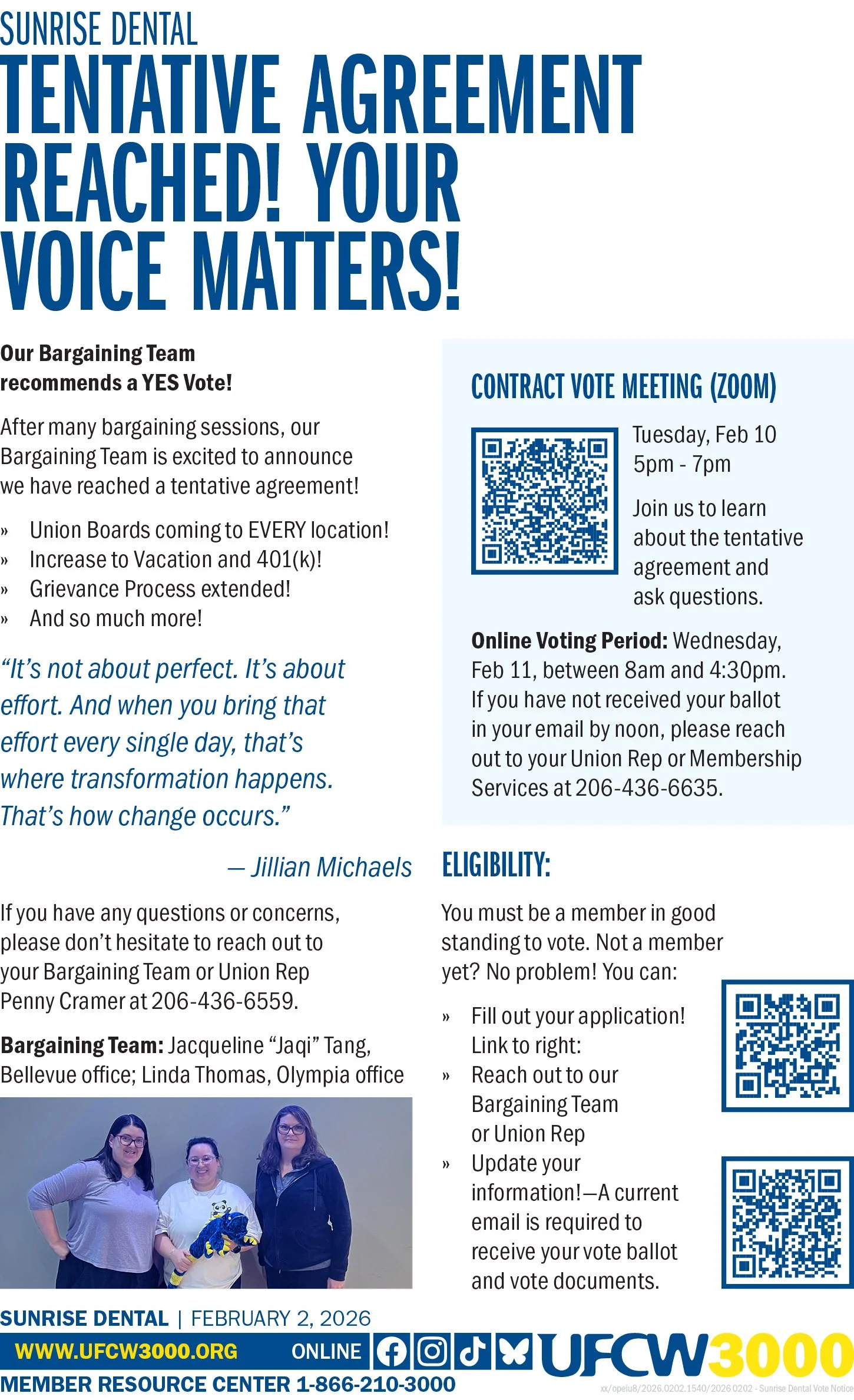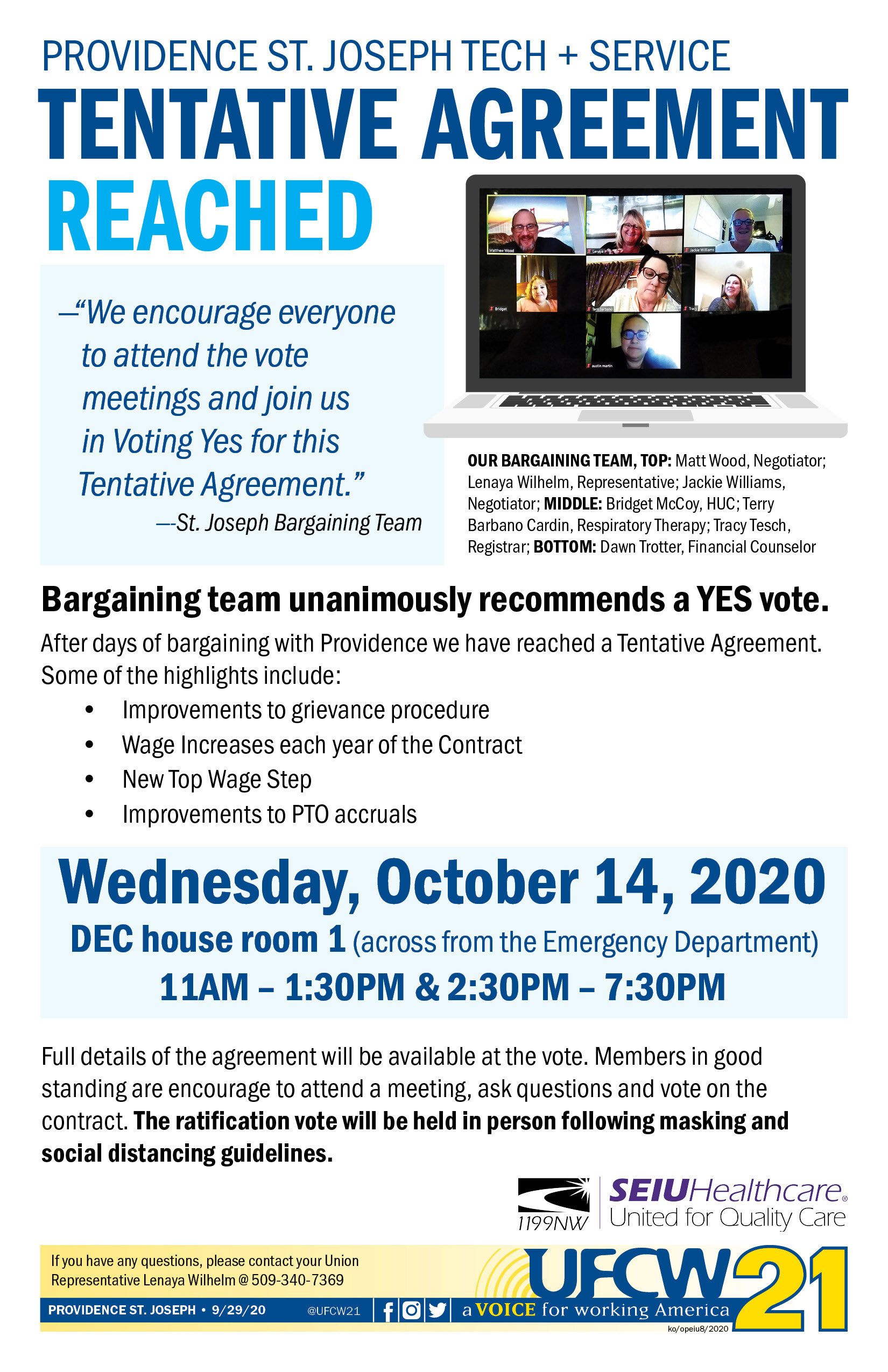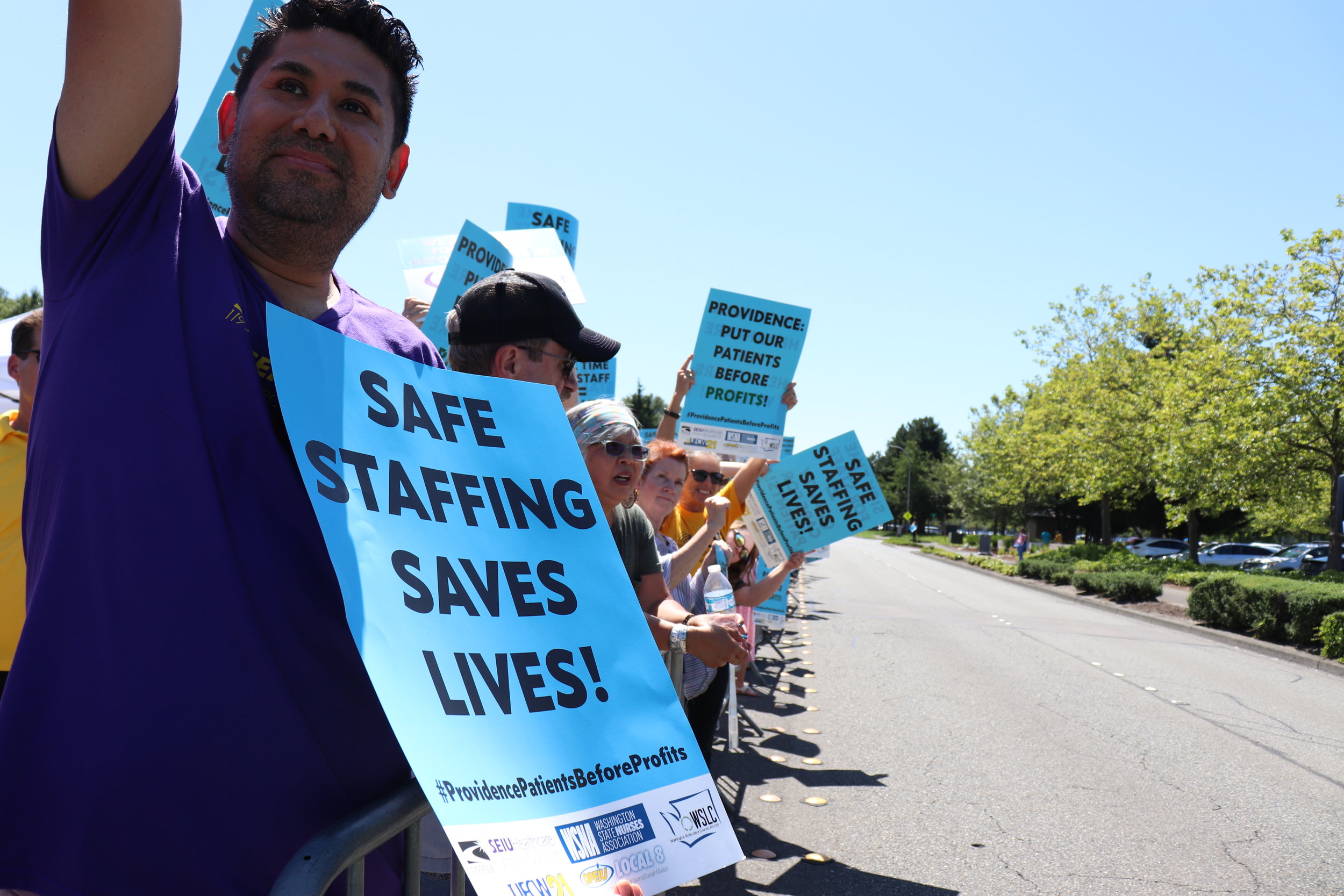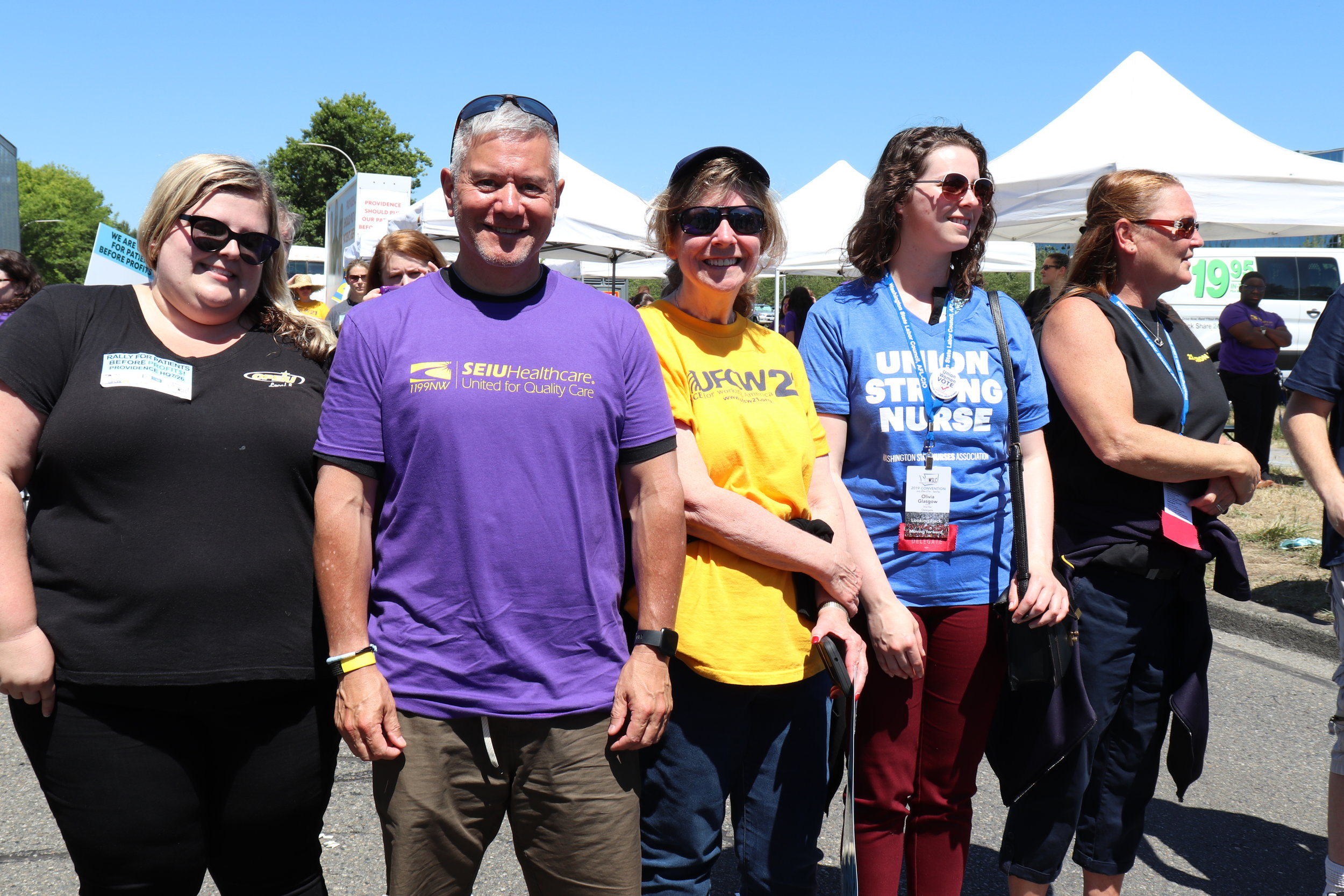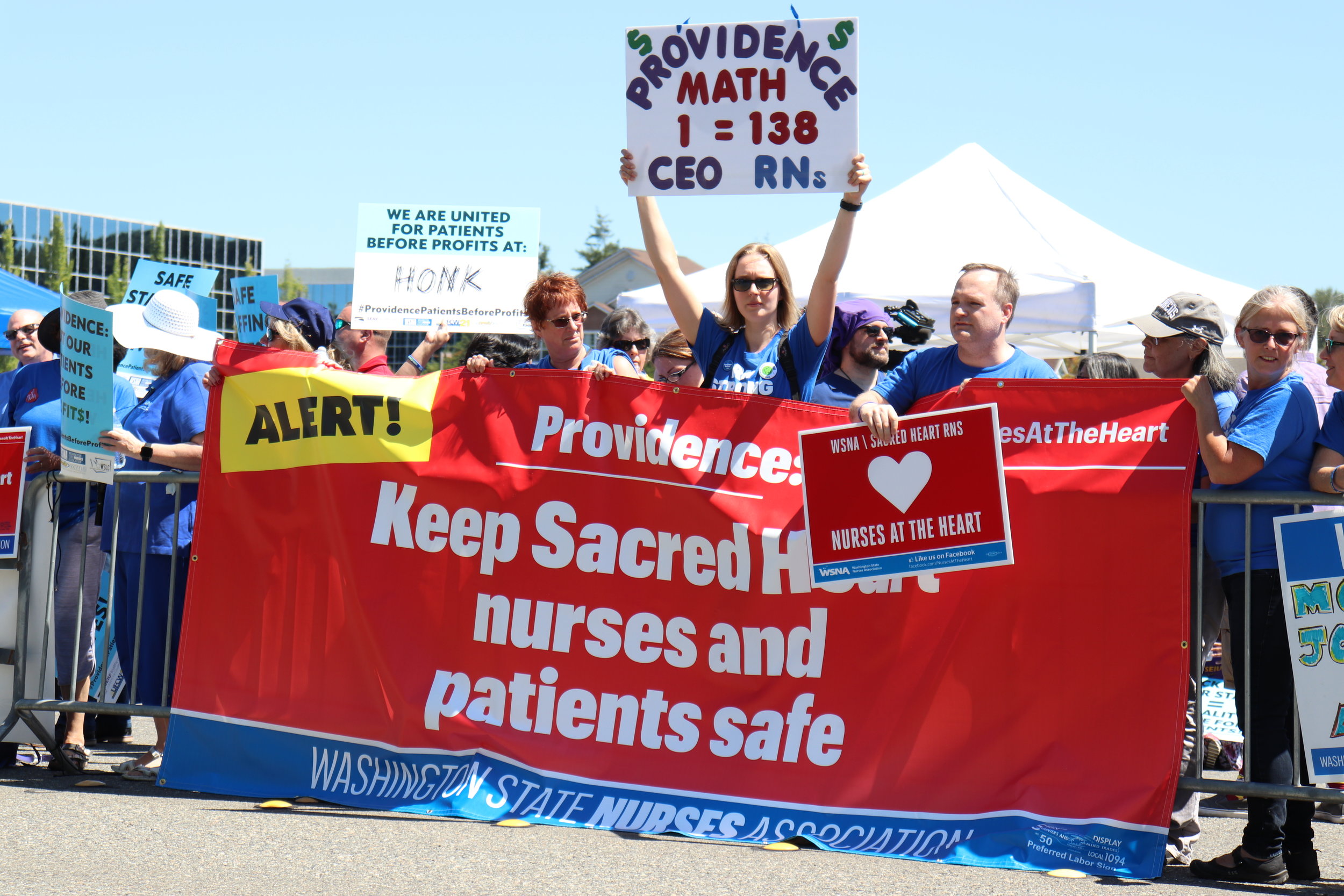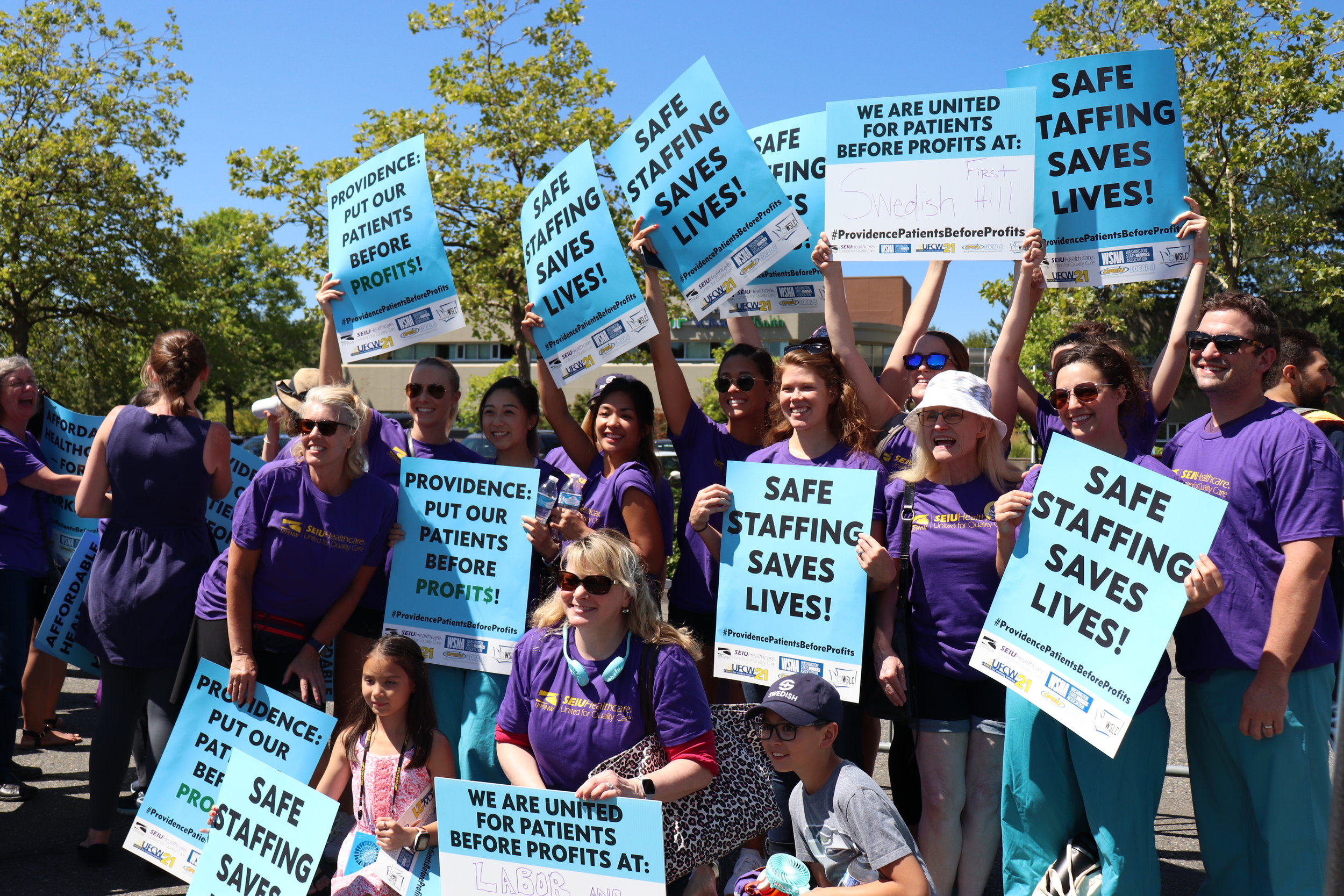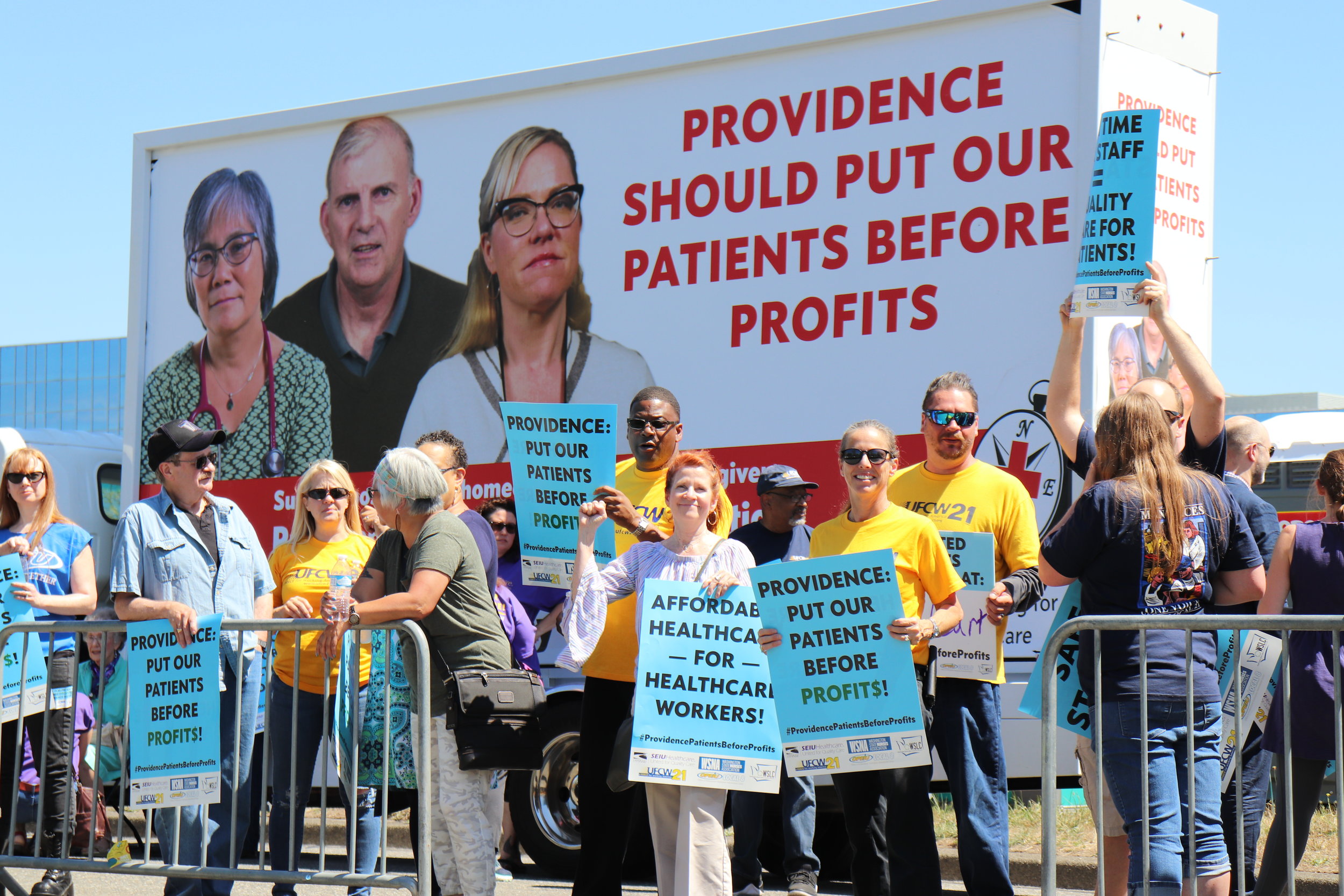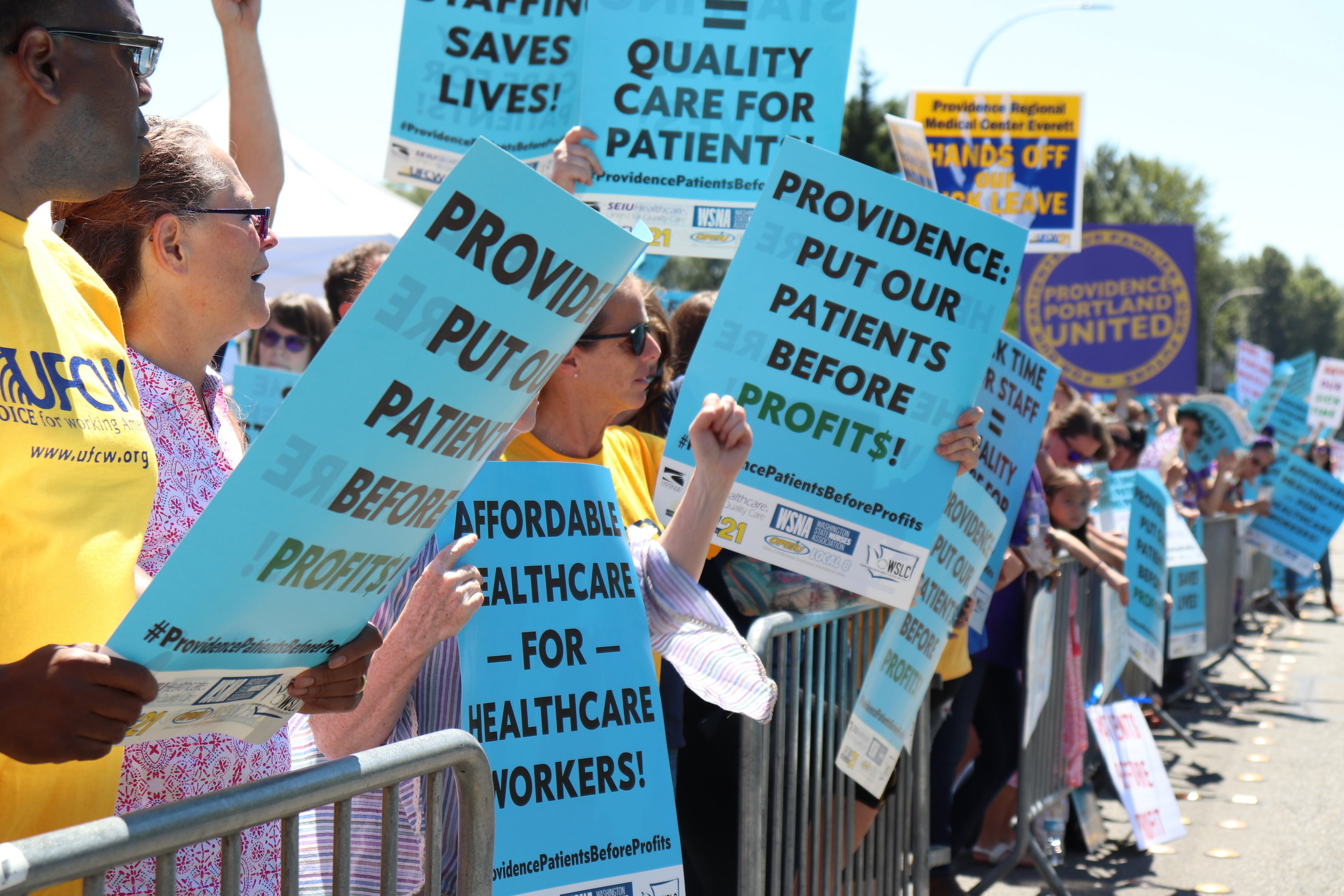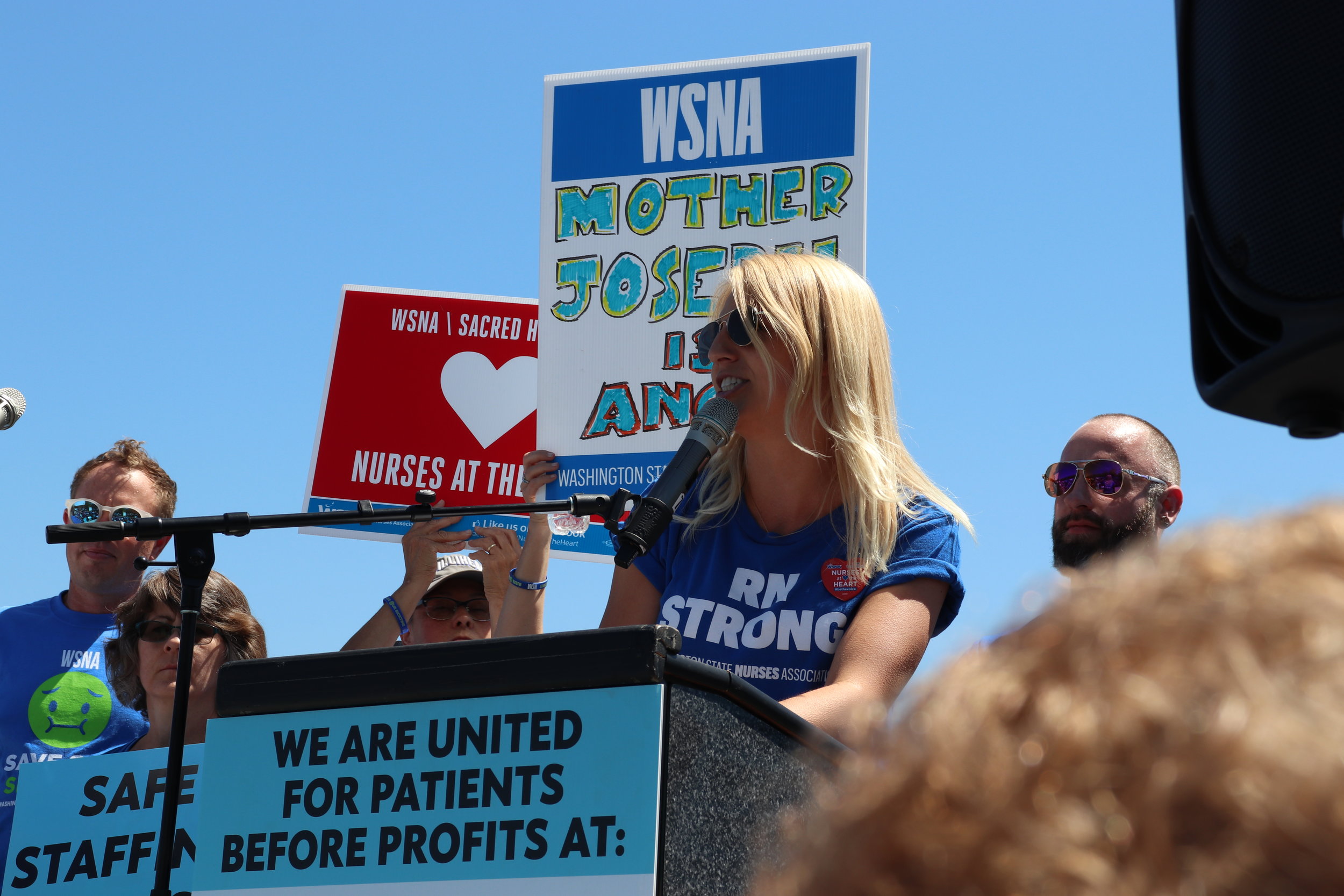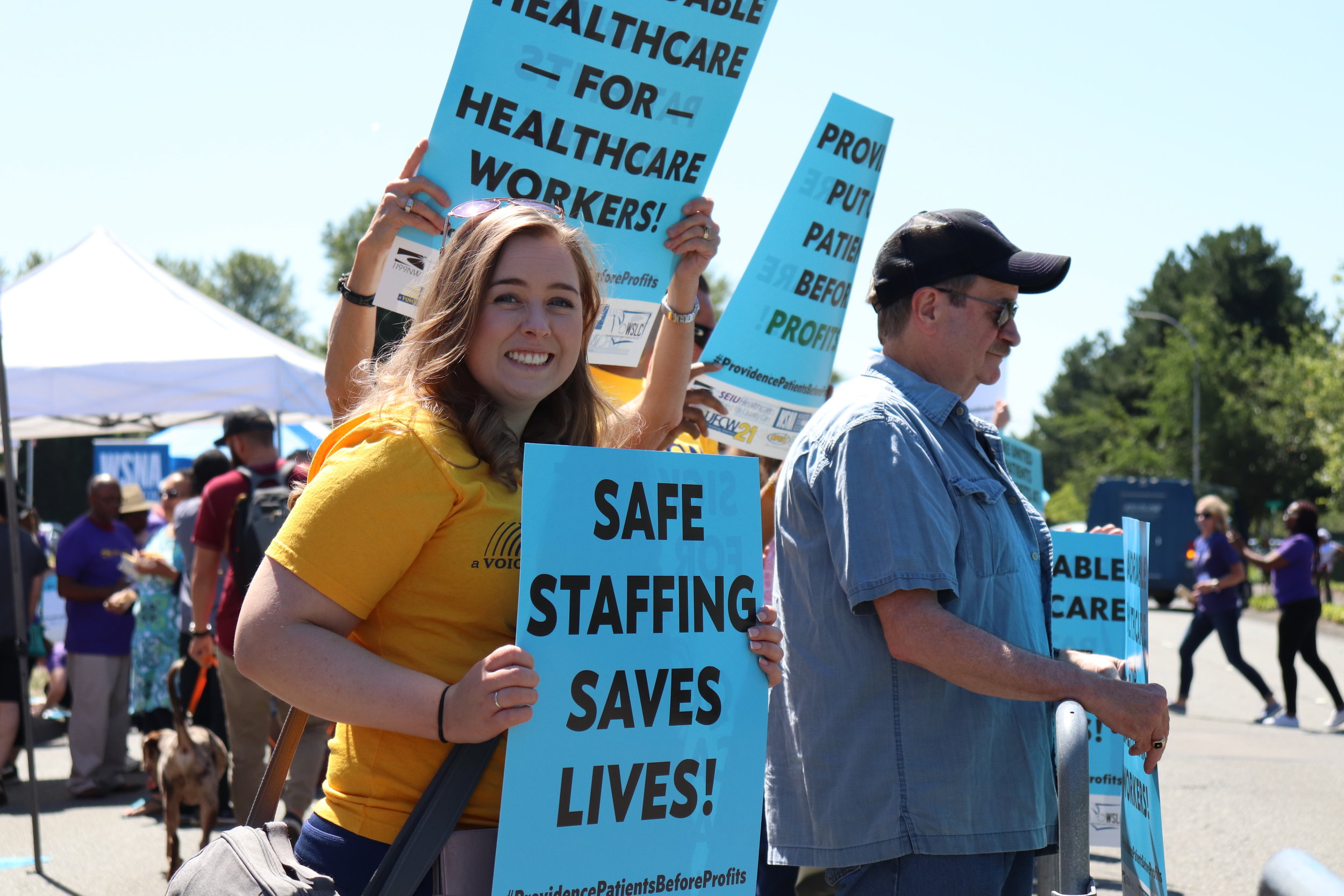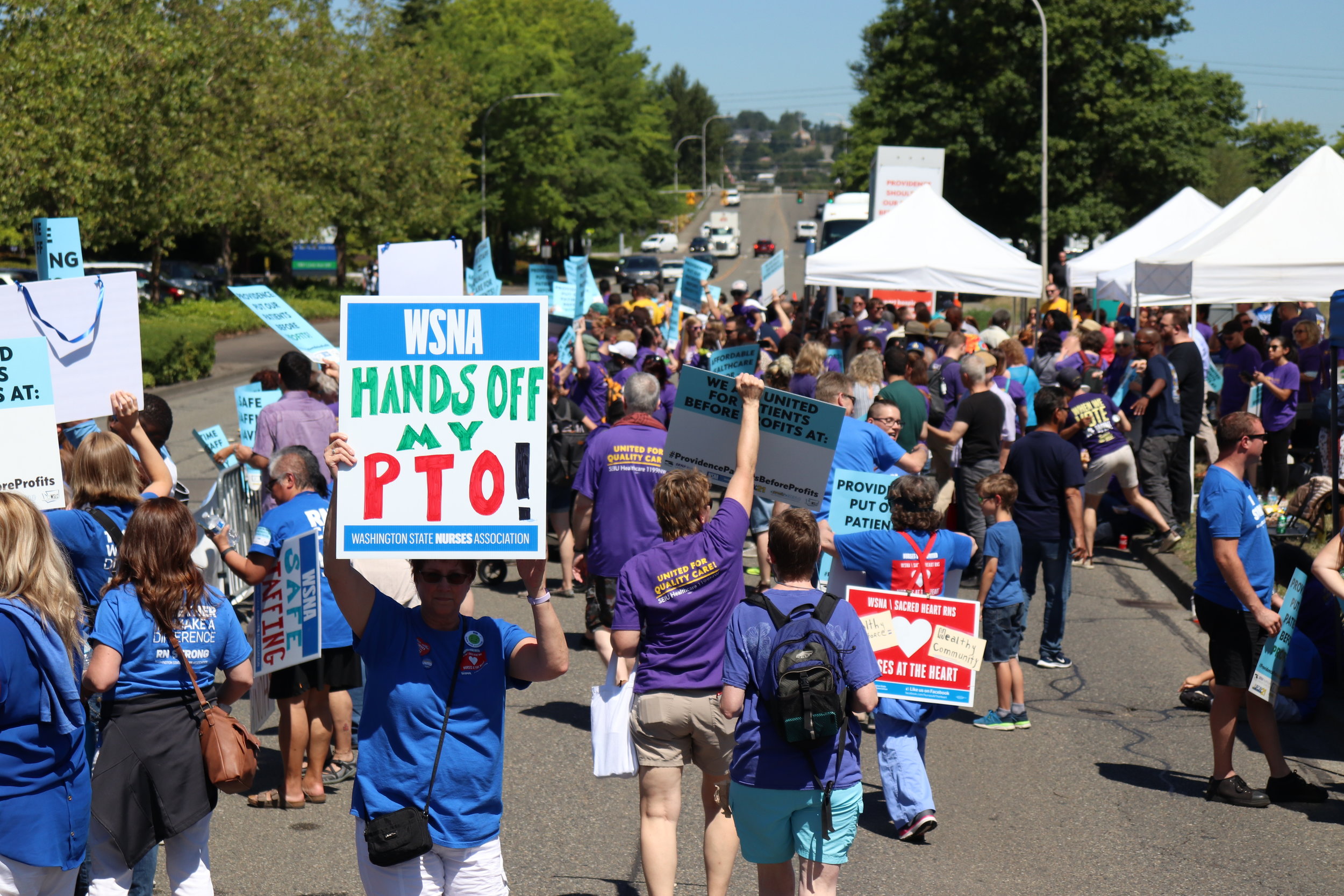JOINT STATEMENT FROM SEIU HEALTHCARE 1199NW, WASHINGTON STATE NURSES ASSOCIATION AND UFCW 21 ON PROHIBITION OF LARGE EVENTS DURING COVID-19 OUTBREAK
/ FOR IMMEDIATE RELEASE:
Wed., March 11, 2020
CONTACT:
Amy Clark,
SEIU Healthcare 1199NW
amyc@seiu1199nw.org
425.306.2061
Ruth Schubert,
Washington State Nurses Association
rschubert@wsna.org
206.713.7884
Sarah Cherin,
UFCW 21
scherin@ufcw21.org
206-436-6580
JOINT STATEMENT FROM SEIU HEALTHCARE 1199NW, WASHINGTON STATE NURSES ASSOCIATION AND UFCW 21 ON PROHIBITION OF LARGE EVENTS DURING COVID-19 OUTBREAK
As nurses and healthcare workers providing essential care to patients in hospitals, clinics, and housing and shelters across Washington state, we applaud Gov. Jay Inslee and the leaders of King, Pierce and Snohomish Counties for taking the necessary step of limiting large gatherings during this stage of the COVID-19 outbreak.
Prohibiting events is a common-sense measure that will help protect our community members from the novel coronavirus.
This measure will also help frontline health care workers and our health care system as a whole effectively respond to this crisis by “flattening the curve” of coronavirus patients seeking care. As health care workers on the front lines of responding to this public health emergency, we support all efforts to reduce the impact on our ability to provide care by lowering the daily number of patients coming into a system that is already stressed by the growing number of COVID-19 patients.
We understand that state and local governments and public health agencies are responding proactively to the existing risks created by this new disease in an effort to minimize those risks and keep our healthcare delivery system accessible to all who may need it.
In our role as caregivers, we are often called on to tell patients the truth about their health. The truth we want our community to hear is this: Social distancing, like that enforced by the measure announced today, is one of the very best ways to prevent the spread of epidemic illness. This temporary change in behavior will help protect all of us from the spread of COVID-19, as well as from cold and flu illnesses common during this time of year.
The most vulnerable COVID-19 patients—those age 60 or older or with underlying health conditions—may need intensive hospital care, and it is essential that we preserve hospital intensive and critical care beds for those most vulnerable patients. Social distancing is a public health measure that will help prevent our health system from being overwhelmed, and will make it easier for anyone with the novel coronavirus to access necessary hospital care.
As nurses and health care workers, we care deeply for our patients and take pride in the roles we play on the front lines of patient care, particularly during a time of heightened concern for community health. Our continued safety during this outbreak is critical to our ability to continue to provide quality patient care. We continue to call on the CDC to proactively and effectively target the supply of respirators and use other controls to reduce the risk of infection in health care workers, knowing that our professionals are at the highest risk of infection. We will continue to work closely with health care employers and with federal and local public health agencies to ensure all caregivers have access to the highest level of personal protective equipment available so we can continue to provide the high-quality health care our communities require.
###
About SEIU Healthcare 1199NW
SEIU Healthcare 1199NW is a union of nurses and healthcare workers with over 30,000 caregivers throughout hospitals, clinics, mental health, skilled home health and hospice programs in Washington state and Montana. SEIU Healthcare 1199NW’s mission is to advocate for quality care and good jobs for all.
About WSNA
WSNA is the leading voice and advocate for nurses in Washington state, providing representation, education and resources that allow nurses to reach their full professional potential and focus on caring for patients. WSNA represents more than 17,000 registered nurses for collective bargaining who provide care in hospitals, clinics, schools and community and public health settings across the state.
About UFCW 21
UFCW 21 is working to build a powerful union that fights for economic, political and social justice in our workplaces and our communities. We represent over 45,000 workers in retail, grocery stores, health care, and other industries in Washington state.
State’s largest hospital and clinic unions call for highest possible level of personal protection for caregivers during COVID-19 outbreak
/ FOR IMMEDIATE RELEASE:
Tues., March 10, 2020
CONTACT:
Amy Clark,
SEIU Healthcare 1199NW
amyc@seiu1199nw.org
425.306.2061
Ruth Schubert,
Washington State Nurses Association
rschubert@wsna.org
206.713.7884
Sarah Cherin,
UFCW 21
scherin@ufcw21.org
206-436-6580
JOINT STATEMENT FROM WASHINGTON STATE NURSES ASSOCIATION, SEIU HEALTHCARE 1199NW AND UFCW21 ON PERSONAL PROTECTIONS FOR HEALTHCARE WORKERS
State’s largest hospital and clinic unions call for highest possible level of personal protection for caregivers during COVID-19 outbreak
The CDC has announced new interim recommendations on the use of personal protective equipment (PPE) for situations where adequate supplies are unavailable. The CDC recommendations state that face masks are an acceptable alternative when the supply chain of respirators cannot meet the demand. We maintain our position that N-95 respirators are the gold standard and are necessary protection for our nurses and healthcare workers caring for suspected and confirmed COVID-19 patients, and the CDC agrees that when the supply chain is restored, providers should return to the use of N95s. The CDC states that “This interim guidance has been updated based on currently available information about COVID-19 and the current situation in the United States, which includes reports of cases of community transmission, infections identified in healthcare personnel (HCP), and shortages of facemasks, N95 filtering facepiece respirators (FFRs) (commonly known as N95 respirators), and gowns.”
The supply shortage must continue to be addressed in the most aggressive way possible. We continue to call on the CDC to proactively and effectively target the supply of respirators and use other controls to reduce the risk of infection in health care workers, knowing that our professionals are at the highest risk of infection. The federal government should do all in its power to increase the supply of N-95 respirators and other PPE, which includes releasing the national stockpile and targeting supplies to areas where the outbreak has already occurred; incentivizing U.S.-based companies to produce more N-95s; and promoting the use of powered air purifying respirators (PAPRs) in health care settings.
We additionally call on hospitals, clinics and other health care facilities to provide personal protective equipment in an equitable manner. All health care workers—providers, nurses, technical staff and service workers including environmental services janitorial staff—who have the potential for direct or indirect exposure to COVID-19 must be afforded the same standard of PPE. Furthermore, many health care workers speak English as a second language. Instruction in the use of PPE and in safe work practices in environments where COVID-19 may be present must be provided in multiple languages and in clear, uncomplicated phrasing in order to increase access to essential information.
As nurses and health care workers, we care deeply for our patients and take pride in the roles we play on the front lines of patient care, particularly during a community health crisis like the one presented by COVID-19. We are committed to the health of our patients and our communities. We will continue to work closely with health care employers and with federal and local public health agencies to ensure all caregivers have access to the highest level of PPE available so we can continue to provide the high-quality health care our communities require.
###
About SEIU Healthcare 1199NW
SEIU Healthcare 1199NW is a union of nurses and healthcare workers with over 30,000 caregivers throughout hospitals, clinics, mental health, skilled home health and hospice programs in Washington state and Montana. SEIU Healthcare 1199NW’s mission is to advocate for quality care and good jobs for all.
About WSNA
WSNA is the leading voice and advocate for nurses in Washington state, providing representation, education and resources that allow nurses to reach their full professional potential and focus on caring for patients. WSNA represents more than 17,000 registered nurses for collective bargaining who provide care in hospitals, clinics, schools and community and public health settings across the state.
About UFCW 21
UFCW 21 is working to build a powerful union that fights for economic, political and social justice in our workplaces and our communities. We represent over 45,000 workers in retail, grocery stores, health care, and other industries in Washington state.
WE STAND TOGETHER – PUT PATIENTS BEFORE PROFITS!
/OPEIU Local 8, SEIU 1199NW Healthcare, WSNA Join UFCW 21
All four unions have come together to stand united for patients over profits. Providence wants to lower standards for over 6,000 UFCW 21 members and another 14,000 union members across the state on issues like safe staffing, wages and secure sick leave.
As workers in Healthcare Institutions our primary purpose is to deliver the highest quality of patient care we can. To accomplish this we need proper staffing on every shift and in every department. Safe staffing levels ensure patient needs are met and creates safer work environments.
We need:
Safe staffing levels to provide the highest quality care possible
Secure sick leave to care for ourselves and our families while not putting patients at risk
Competitive compensation to recruit and retain the best workers into our communities
Affordable accessible healthcare
So far Management’s response continues to fall short. All four unions are facing the same challenges at our bargaining tables. Together we are working in coalition and are committed to raising standards that will allow us to recruit and retain high quality healthcare providers for our communities.
Management has offered:
No plan for addressing staffing levels
Inferior coverage for when we are sick forcing us to work and put our patients at risk when we should be caring for ourselves
Compensation that will not allow Providence to stay competitive with other area Hospitals putting our communities at risk
Our Union Coalition, along with community leaders and elected officials are taking action and we need every union member to stand strong!
While we fight for standards, safe workplaces and healthy communities at Centralia Hospital, St Mary’s Hospital, St. Joseph’s Hospital, Holy Family Hospital and Mt Carmel Hospital
We stand with WSNA at Sacred Heart Medical Center!
We stand with OPEIU 8 at Providence Regional Medical Center Everett!
We stand with SEIU 1199NW at Swedish Hospital!
Spokane Update
In Spokane we are bargaining for over 300 workers at Holy Family Hospital and 1,800 workers at Sacred Heart Medical Center where our proposals reflect our priority to improve working conditions in the face of Management’s proposed takeaways.
After months of negotiations and working with a Federal Mediator we are no closer to a new contract with Providence.
Management does not appear to be willing to work on a fair settlement, instead they want to strip us of hard-earned benefits while offering an inferior wage package.
We have said “NO” again and again so it’s time to take further action to reach a new contract.
How much money do they need to take from us until enough is enough? For a non-profit their profits are overwhelmingly high. Providence should re-invest those profits in Patient Care and their employees, not just their CEO’s!
It’s time for Providence to “Step Up” and “Put Patients and Safe Staffing Before Profits.”
Contact your Bargaining Team members for more information on how you can help solve our staffing crisis.


